
University of Stuttgart Fees and Cost of Studying for Indian Students 2025-26
University of Stuttgart offers 114 courses across Master and Bachelor levels. U of Stuttgart is well-known for courses in fields like Sciences, Engineering and Arts. The popular courses among international students at University of Stuttgart include:
- Master of Science [M.S] Computer Science (298 Views Last Year)
- Master of Science [M.S] Electrical Engineering (148 Views Last Year)
- Master of Science [M.S] Aerospace Engineering (118 Views Last Year)
How Much Does it Cost to Study at University of Stuttgart for Indian Students?
University of Stuttgart Cost 2025 for Popular Courses among Indian Students is as tabulated below
University of Stuttgart Fees for Indian Students
- The cost for University of Stuttgart M.S Computer Science is EUR 3000/Year (₹3.06 Lakhs). In 2023, the fee was EUR 3000/Year (₹3.06 Lakhs). The fee has remained unchanged.
- University of Stuttgart M.S Electrical Engineering fee 2024 is EUR 3000/Year (₹3.06 Lakhs), compared to EUR 3000/Year (₹3.06 Lakhs) in 2023. The fee has remained unchanged.
- The 2024 fee for M.S Aerospace Engineering at University of Stuttgart is EUR 3000/Year (₹3.06 Lakhs). In 2023, the fee was EUR 3000/Year (₹3.06 Lakhs). Compared to the previous year, fee has remained unchanged.
University of Stuttgart Cost of Living
The annual cost of living in Stuttgart, Germany for University of Stuttgart students is approximately EUR 3120 (INR 3.18 Lakhs). This includes rent, utilities, food, transport, and other personal expenses.
Also Check:
Popular Programs and Important Dates
| Program | Important Dates | Fees | Eligibility |
|---|---|---|---|
M.S Computer Science 2 years | Application Deadline For Summer 2026 Intake (15th Jan 2026) | USD 3,480 /Yr EUR 3,000 /Yr | IELTS:- 7.0, TOEFL:- 95 |
M.S Electrical Engineering 2 years | Application Deadline For Summer 2026 Intake (15th Jan 2026) | USD 3,480 /Yr EUR 3,000 /Yr | IELTS:- 7.0, TOEFL:- 95 |
M.S Aerospace Engineering 2 years | Application Deadline For Summer 2026 Intake (15th Jan 2026) | USD 3,480 /Yr EUR 3,000 /Yr | - |
M.S Mechanical engineering 2 years | Application Deadline For Summer 2026 Intake (15th Jan 2026) | USD 3,480 /Yr EUR 3,000 /Yr | - |
Application Deadline For Winter 2025 Intake (15th Oct 2025) | USD 3,480 /Yr EUR 3,000 /Yr | IELTS:- 6.0, TOEFL:- 79 | |
Application Deadline For Summer 2026 Intake (15th Jan 2026) | USD 3,480 /Yr EUR 3,000 /Yr | - | |
M.S Information Technology 2 years | Application Deadline For Summer 2026 Intake (15th Jan 2026) | USD 3,480 /Yr EUR 3,000 /Yr | IELTS:- 7.0, TOEFL:- 95 |
M.S Electromobility 2 years | Application Deadline For Summer 2026 Intake (15th Jan 2026) | USD 3,480 /Yr EUR 3,000 /Yr | - |
Application Deadline For Summer 2026 Intake (15th Jan 2026) | USD 3,480 /Yr EUR 3,000 /Yr | IELTS:- 7.0, TOEFL:- 95, PTE:- 76 | |
Application Deadline For Summer 2026 Intake (15th Jan 2026) | USD 3,480 /Yr EUR 3,000 /Yr | IELTS:- 6.0, TOEFL:- 79 |
Do you think the Dates are wrong ? Report Here
STEM Course
Master of Science [M.S] Computer Science
Bachelor of Science [B.S] Computer Science
Bachelor of Arts [B.A] Computer Science
Do you think the fees are wrong ? Report Here
Course Finder - Search from 50K+ courses
Popular Streams:
University of Stuttgart Reviews
32 Reviews Found
Likes
- Nice catalog of subjects that can be studied in the course
- Good alignment topics towards specialization.
- Decent collaboration of projects with industry.
Dislikes
- Sometimes few subjects of interest overlap and one needs to then choose any one for that semester.
- Exams for a subject may not be available at both semesters.
- International students have to pay a state fee of 1500€ extra per semester.
Course Curriculum
-
Difficulty, of course:
- It generally depended on subjects but on a scale of 0-10 difficulty was 7.
- Depending on the subjects you took, it was either theory or practical.
- Subjects were a good mix of both.
- Positive aspects of the course:
- Wide catalogue to choose from so you can really take the subjects that interest you or can build the portfolio for your professional life.
- There are certain project-orientated courses that can help understand the application of topics at an industrial level.
- Negatives:
- Some course timings overlap, making it impossible to take both.
- Some (very few) require a bachelor course prerequisite, and that course in bachelors is taught in German.
- Class timings:
- Highly flexible. 3 hrs of lectures/practicals are performed per week per subject, but the timings are based on professor availability. You can have no lecture on one day and say 5 on the next. Earliest lecture starts at 8:00 am and the latest lecture ends at 17:15.
- Number of students in class: Again, depending on interested people, it can be from 15 to 100. the reason is a subject can be offered across multiple master's programmes.
- In my course we had 15 Indian students (out of 30)
Fees
- Fees (per semester):
- Admission fees: 200€
- Tuition fees (only for international students): €1500
- Apart from these, no other fees are collected by the university.
- Monthly expense (apart from fees): 850€ (this can vary from person to person but general is between 750-1000)
- Room Rent (including utilities): 400€
- Health insurance: €130
- Groceries: 150€
- Internet: 20€
- Travel: 50€
- Social life (movies, restaurants, etc.): 100€
Likes
- The University of Stuttgart is one of the most reputed universities in Germany and is part of the TU9 cooperation/association.
- It houses a wide range of Intstitutes from the STEM background, which in turn offer a number of Bachlors/Masters programme
- It promotes state of the art research acitivities and developtment of cutting edge technologies
Dislikes
- As I was enrolled for an international course, I had to pay a tuition fee of 1500 euros each semester.
- Availability of english taught courses is pretty less, but that's the case at any other german university I guess.
- Honestly the university buildings could have had a better and a more beautiful look. They do look modern, but are very mundane without any colour and texture.
Course Curriculum
- The courses were very difficult as compared to the level of courses undertaken during the bachelor's study in india. It is recommended to revise and study each week to keep up with the difficult curriculum. Commas was purely theoretical with very less practical exposure
- Positive aspects: It is completely theoretical and research-orientated. In-depth knowledge about the topic is provided. Opens the door for a possible PhD opportunity after the master's. Access to various institutes that are conducting groundbreaking research in this field.
- Negative aspects: Very difficult curriculum. Time-consuming assignments. Less exposure to practical or application based knowledge
- Classes: 5 classes per day (1.5 hrs each), maximum. usual timings were 8:00 am to 4:00/5:00pm
- The average number of students for my course was 25. 50% of the enrolled students are indian
Fees
- Breakdown of fees (per semester): Tuition fees-1500 euros Semester contribution-200euros
- Fees is charged semester-wise
- Monthly expenses: Rent: 350 euros, Health insuarance(compulsory):120euros, Food & Groceries: 150 euros, Transport ticket/internet/sim card charges:80 euros, Auxiliary (trips/gym/outings): 200 euros. Total 800euros approx (can sustain in less as well, based on lifestyle.)
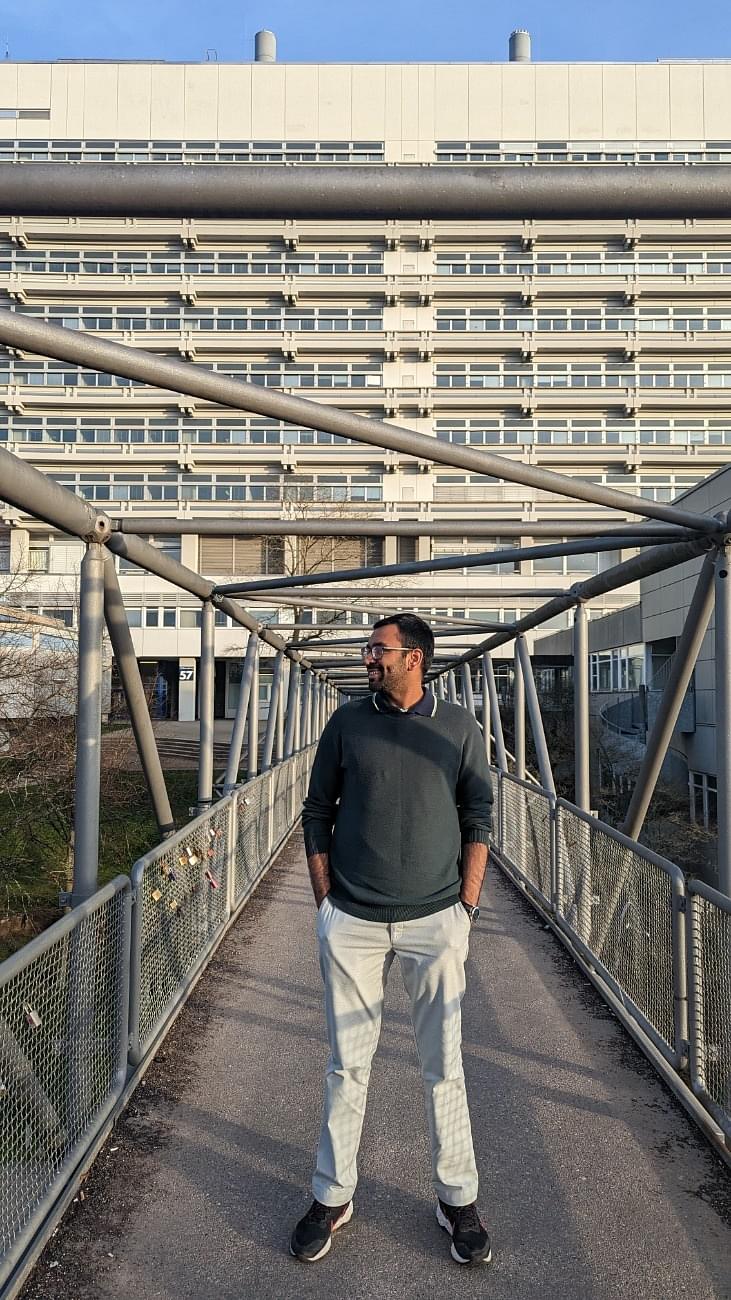
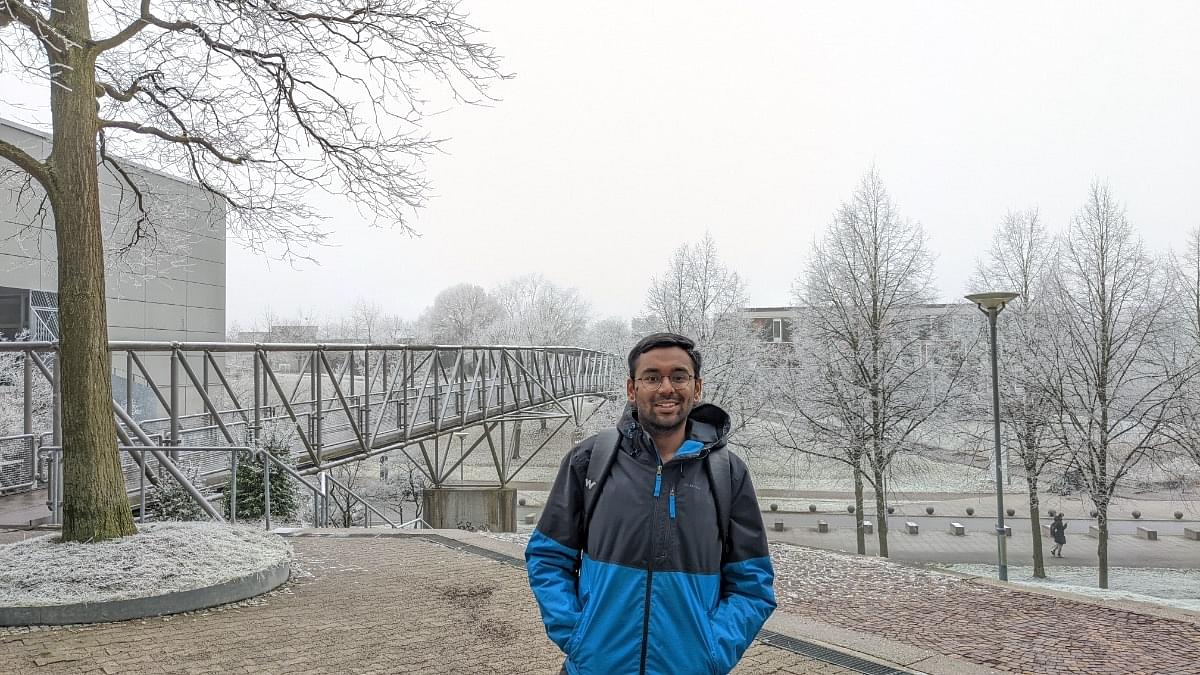
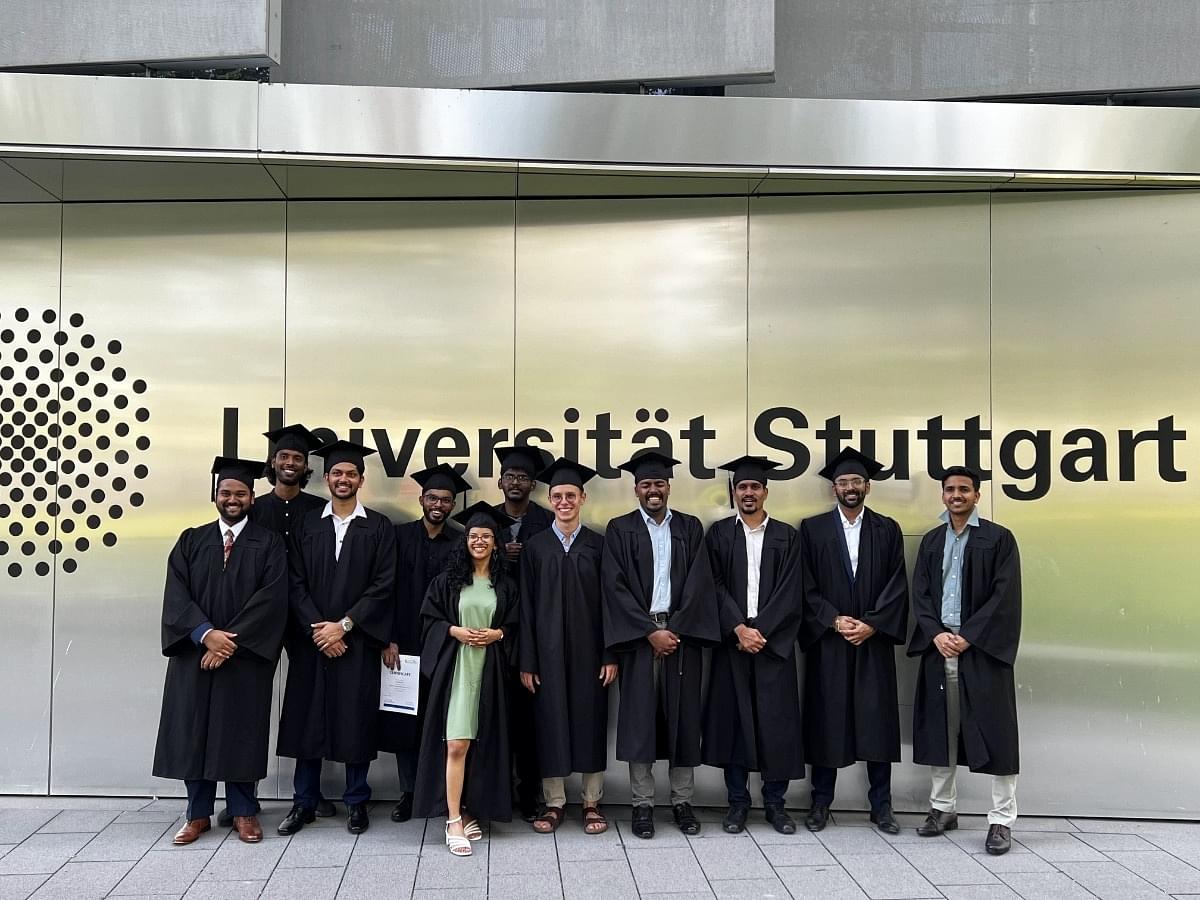

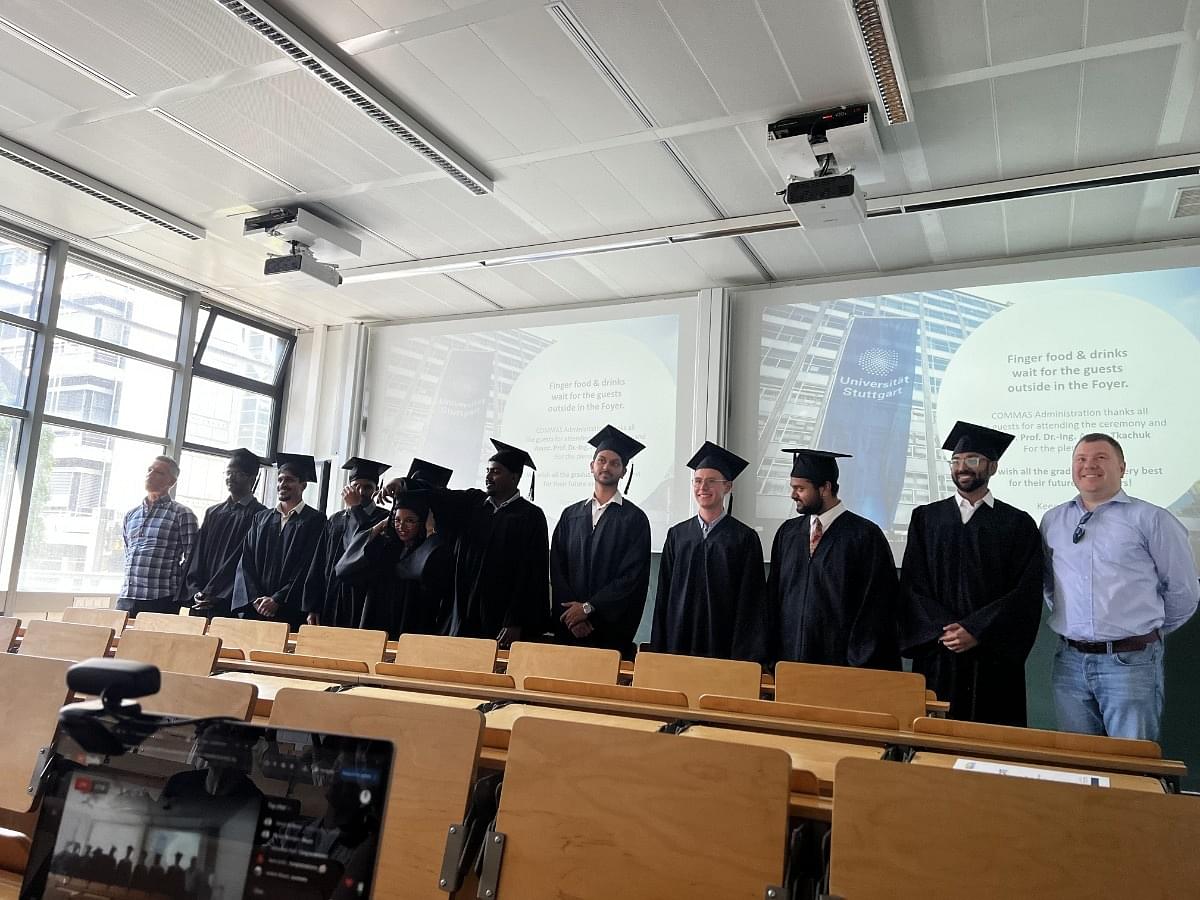
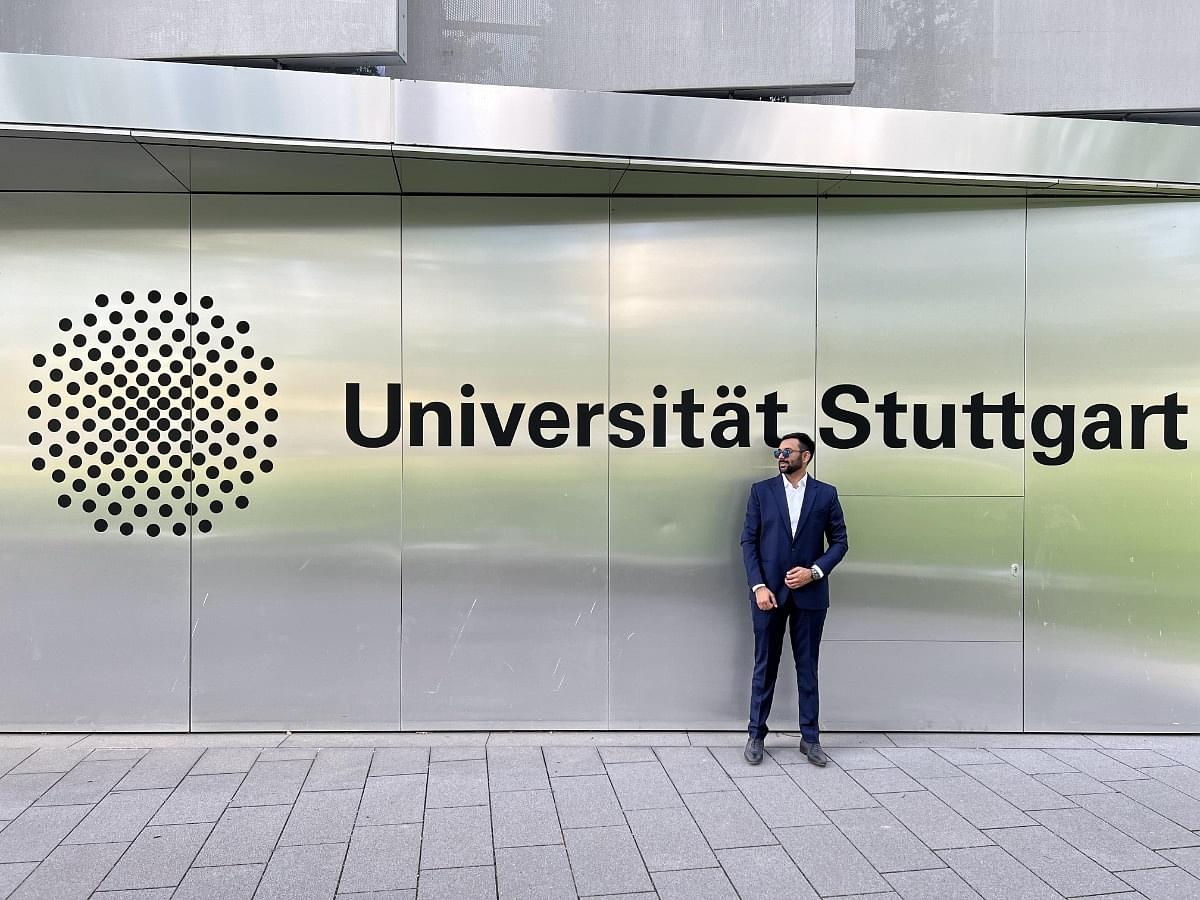
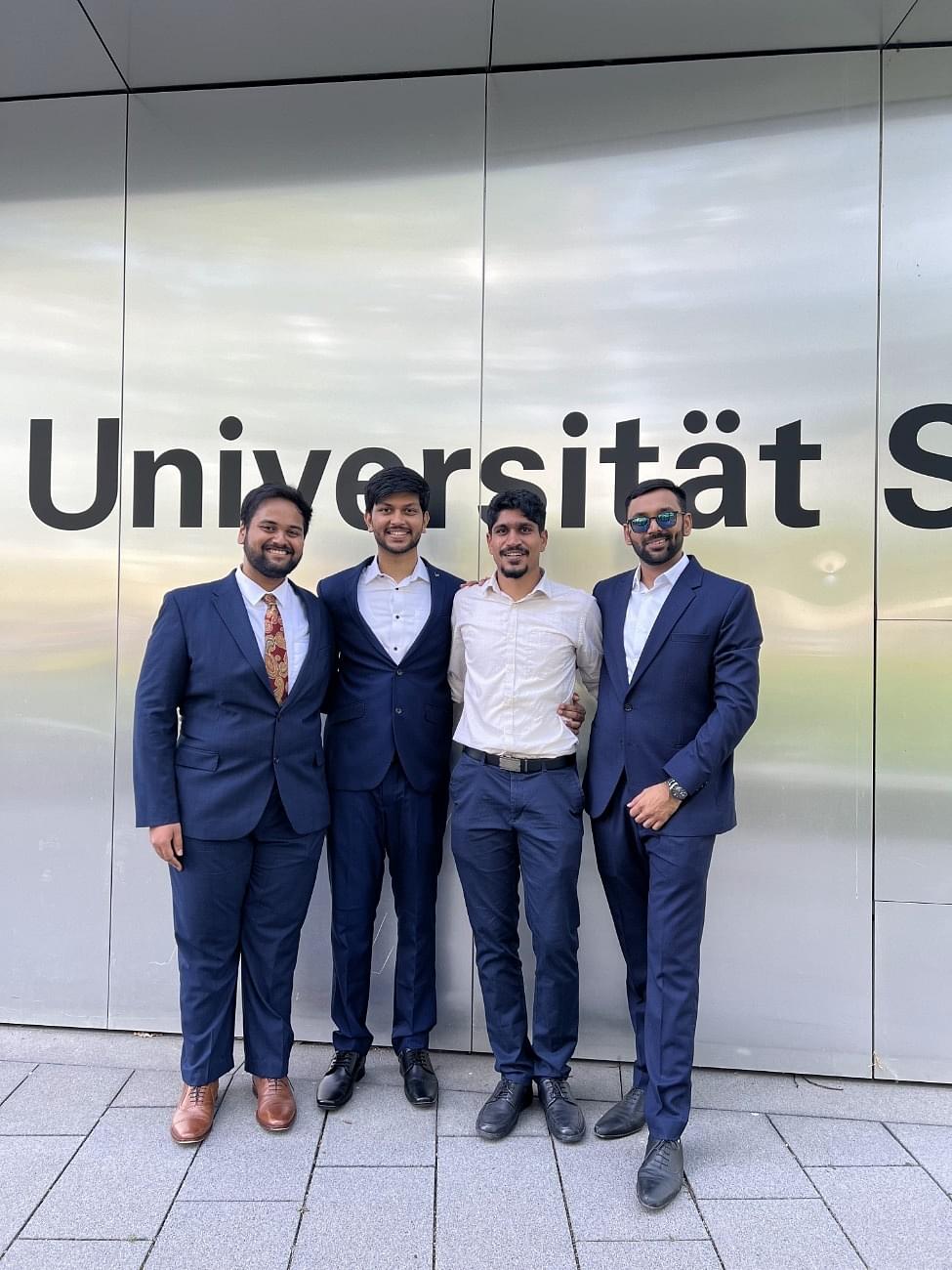
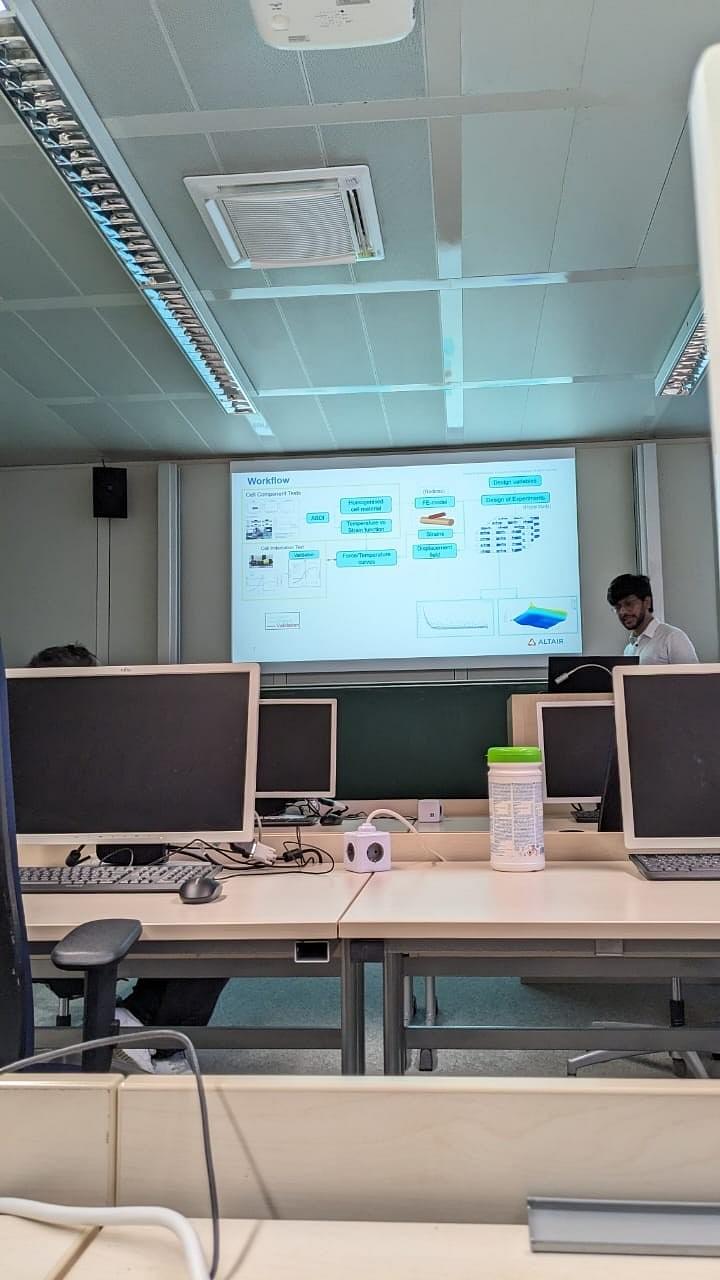
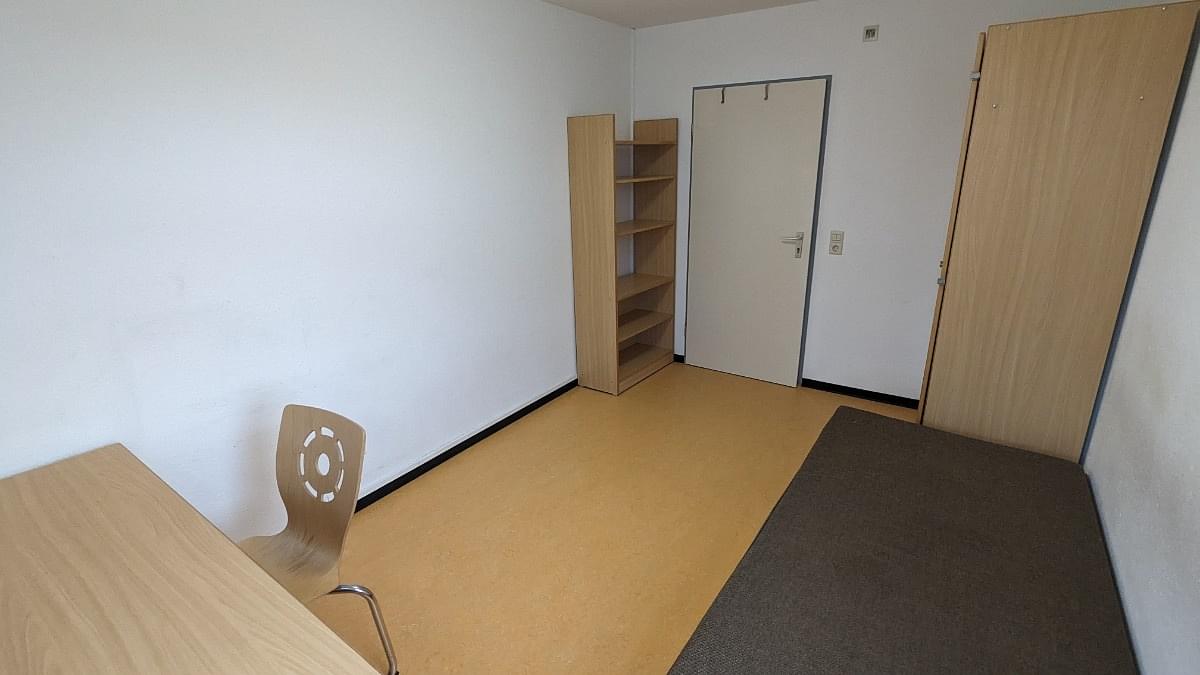
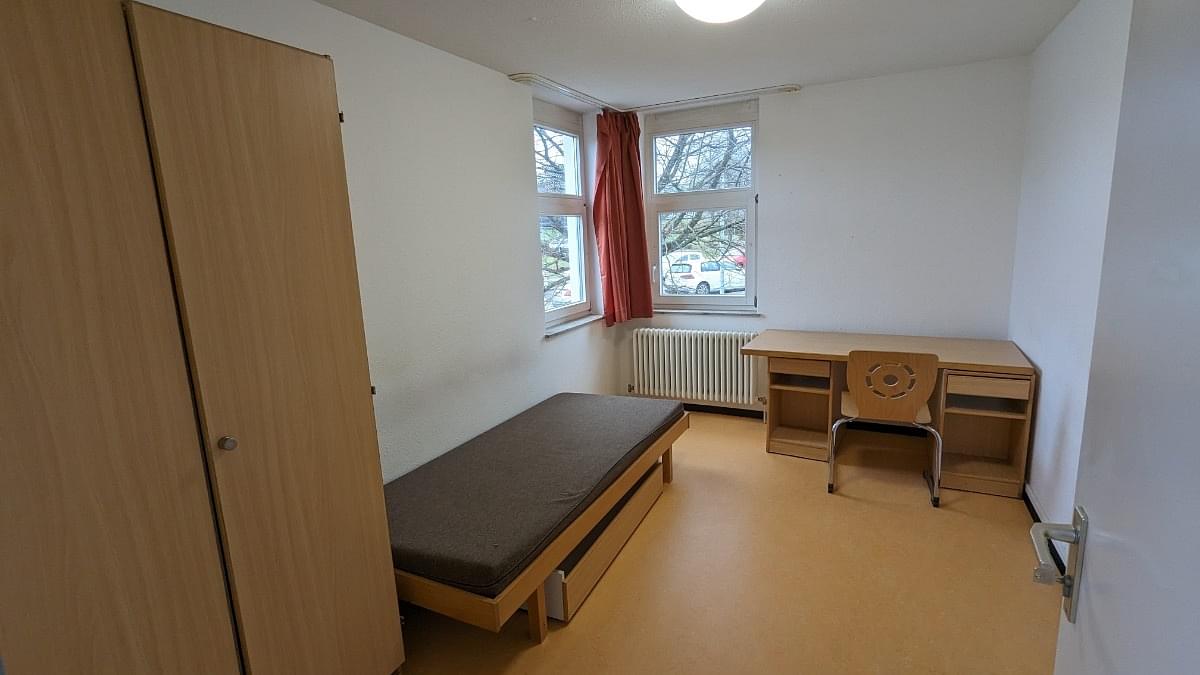
Likes
- There are a lot of Research opportunities at the university.
- Attendance at the UNI isn't mandatory for most classes. There are some which do have mandatory attendance but a lot of them don't so it provides a lot of flexibility.
- You can finish the course at your pace. For new students abroad it is difficult to manage everything and hence this comes real handy.
Dislikes
- It has a fees of around 1600 Euros for international students. Which is kind of not satisfying for a German uni.
- Most of the professors don't know how to teach. Atleast relative to teachers that we have in India.
- You have to pass a certain criteria to able to give an exam.
Course Curriculum
- The difficulty of my course curriculum is quite difficult as compared to my bachelor's degree in India. As the university is a research university, there are a lot of theoretical courses. There are plenty of practical courses here as well so it's a mix of both, I'd say.
- Average number of students in our class again depends on the course.
- For eg, Machine learning had over 70 students but a practical course for Software engineering had like 20. There are some courses which have limits on how many students can register.
- There are quite a few indian students enrolled here. Around 30% of the students are Indians.
Fees
- Tuition + Administration fees – 1650 Euros per Semester
- The Uni collects the fees per semester
- Monthly Expense
- Deutschland ticket – 39 euros (for students)
- Health insurance – 140 Euros
- Rent – 350 Euros
- Groceries and Misc - 200 Euros
- You get around 950 euros from your blocked account. If you use your money wisely, you will be able to save around 200 euros per Month. If you are able to get a working student, then you will be able to save more than 1000 euros easily.
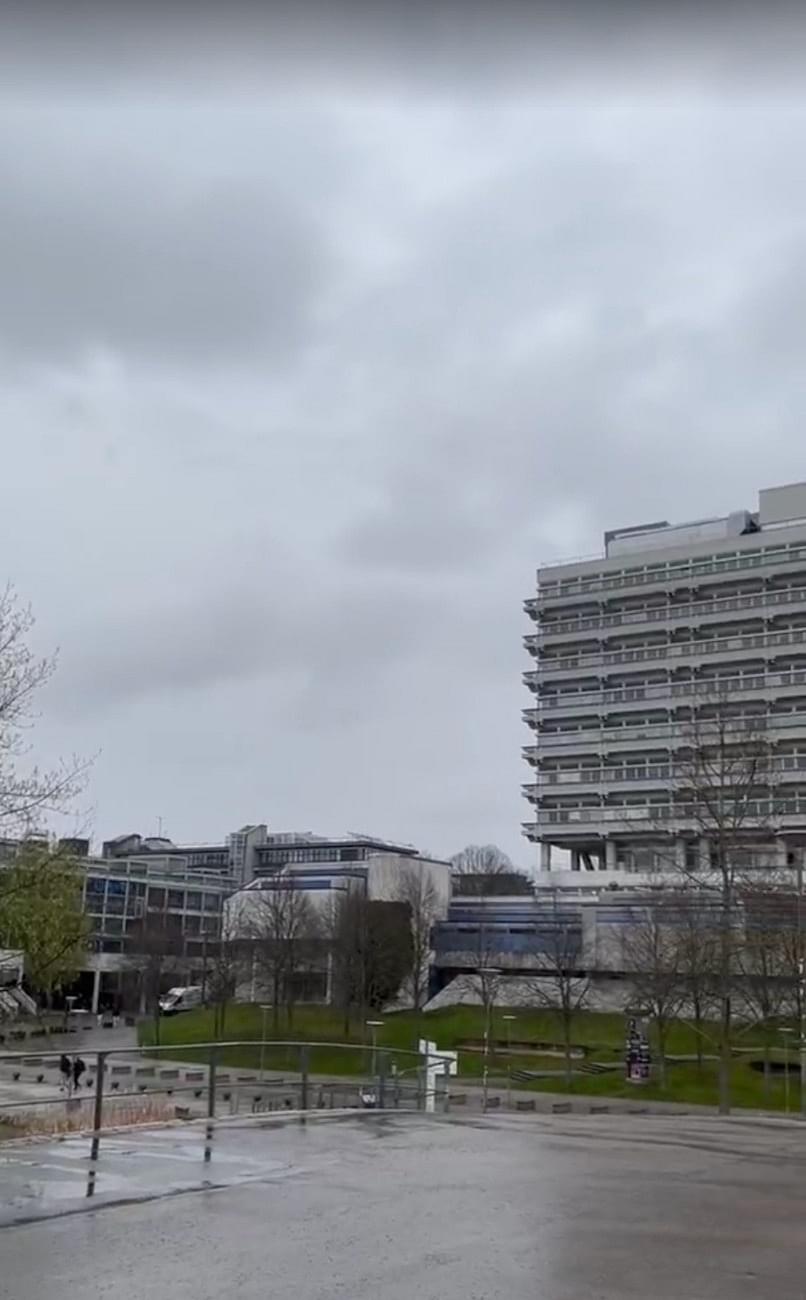
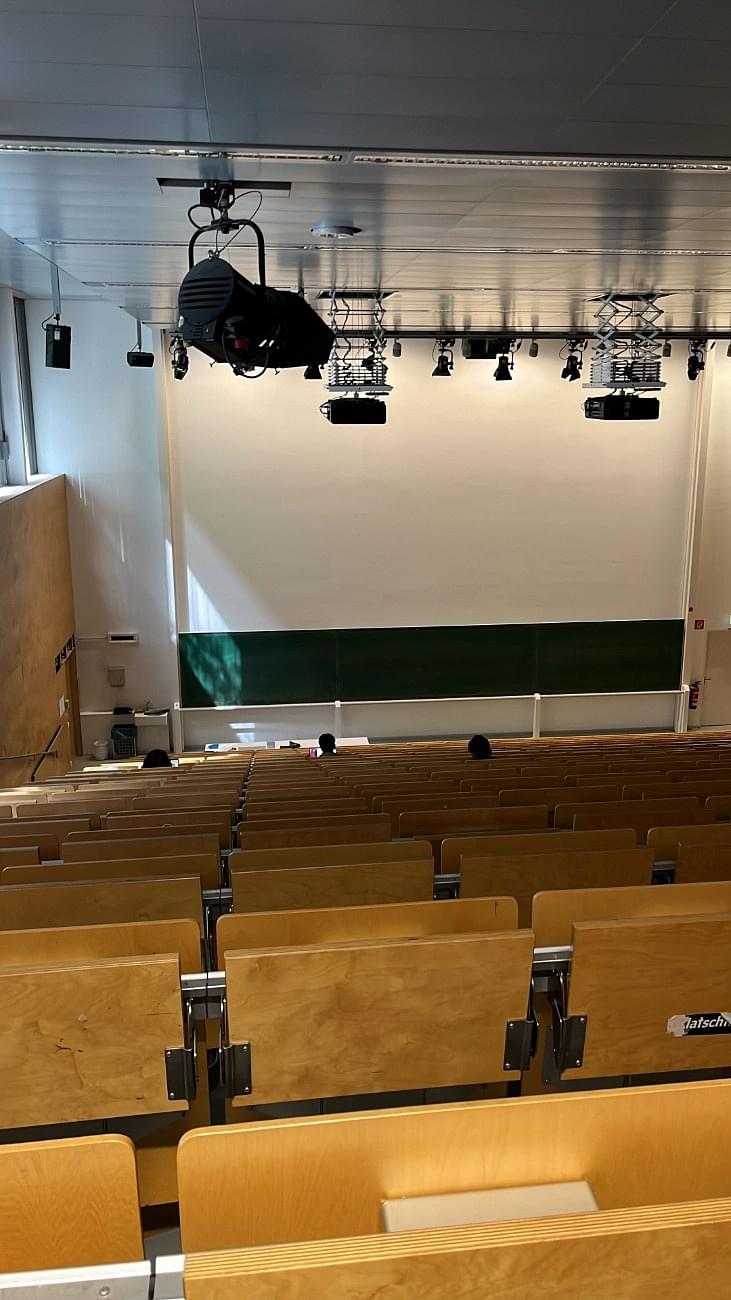
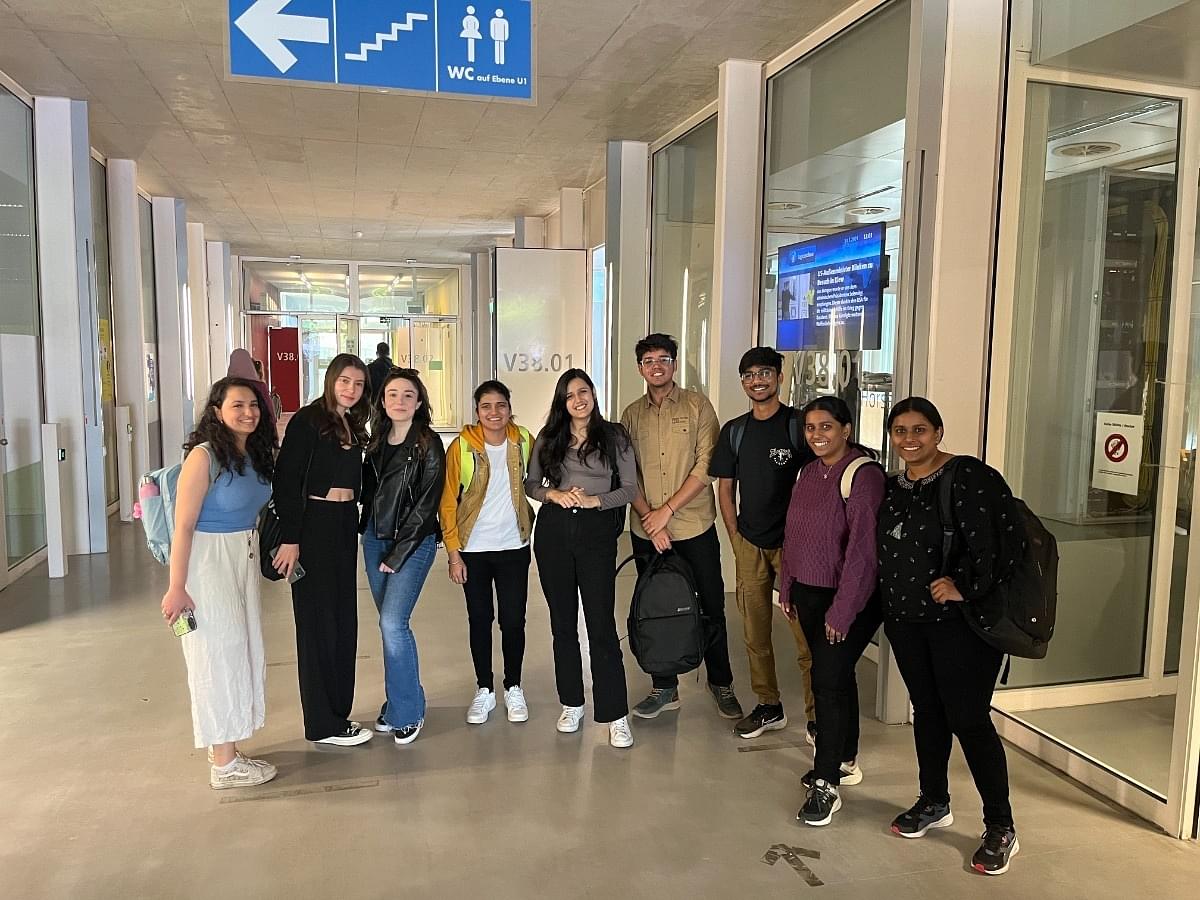

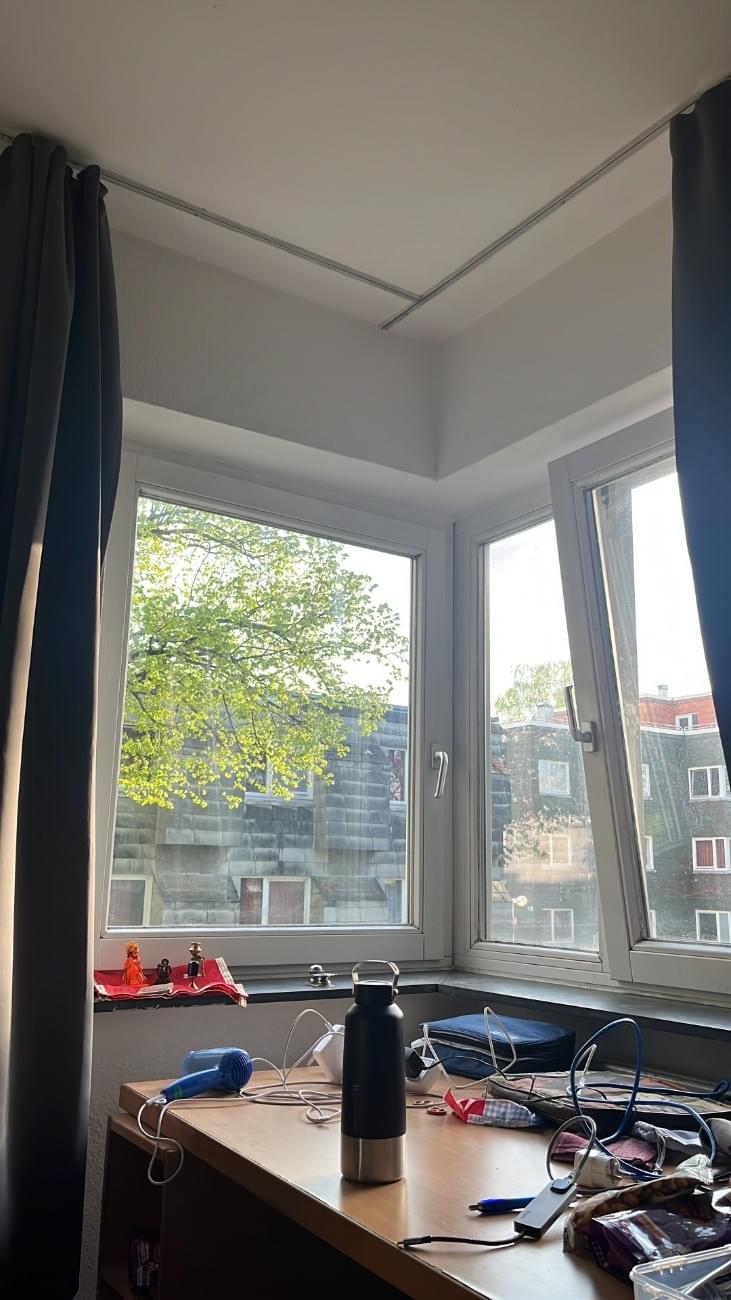

Likes
- Freedom/Choice of courses. For Computer Science (International - English) course, students have tens of choices of different subjects and three technical lines to follow. It all depends on the student
- Freedom to work and complete their course. Students can complete their course in minimum of 2 years or a maximum of 4.5 years.
- Most of professors are helpful and very knowledgable. Students can personally get in touch with them, and genuine effort is appreciated.
Dislikes
- Social Life - Difficult to make friends or have an interesting social life if you don't have a grasp on German.
- Weather - Very very difficult to stay positive in dark winters. It gets very cold and very dark in winters, and is very tough mentally - Proactively stay active and take a lot of Vitamin D.
- Healthcare - Healthcare in general in Germany can be tough especially if you have chronic diseases with a shortage of doctors and specialists.
Course Curriculum
- Difficulty level depends on the choice of courses. There are technically difficult courses. Students who want to pursue research in the future can pursue more theoretical courses and students who are more interested in pursuing jobs after their studies can pursue more practical courses.
- Schedules of classes are extremely dynamic and based on student choices. There can be conflicts between 2 courses based on the choices. In that case, one has to drop one of the courses if it is mandatory to come to the class, especially exercise or practical courses. Number of classes in a day can vary from 0 to 6 based on what the student chooses.
- Average number of students – varies from course to course. Some courses can be extremely popular and can be attended by not only computer science students but students from other groups as well. I was in the Computer Science – October 2022 batch.
Fees
- Semester Fees (Every 6 months)—1500 tuition fees + 160-200 euros of administration fees
- Monthly Expenses:
- 350 Euros - Rent
- 135 Euros - Health Insurance
- 38 Euros – Deutschland Ticket – Transport
- 150-200 Euros - Groceries
- 50 Euros - Miscellaneous
- Total Expenses Around 750-800 Euros
- Students can easily work and study together to balance out the expenses.
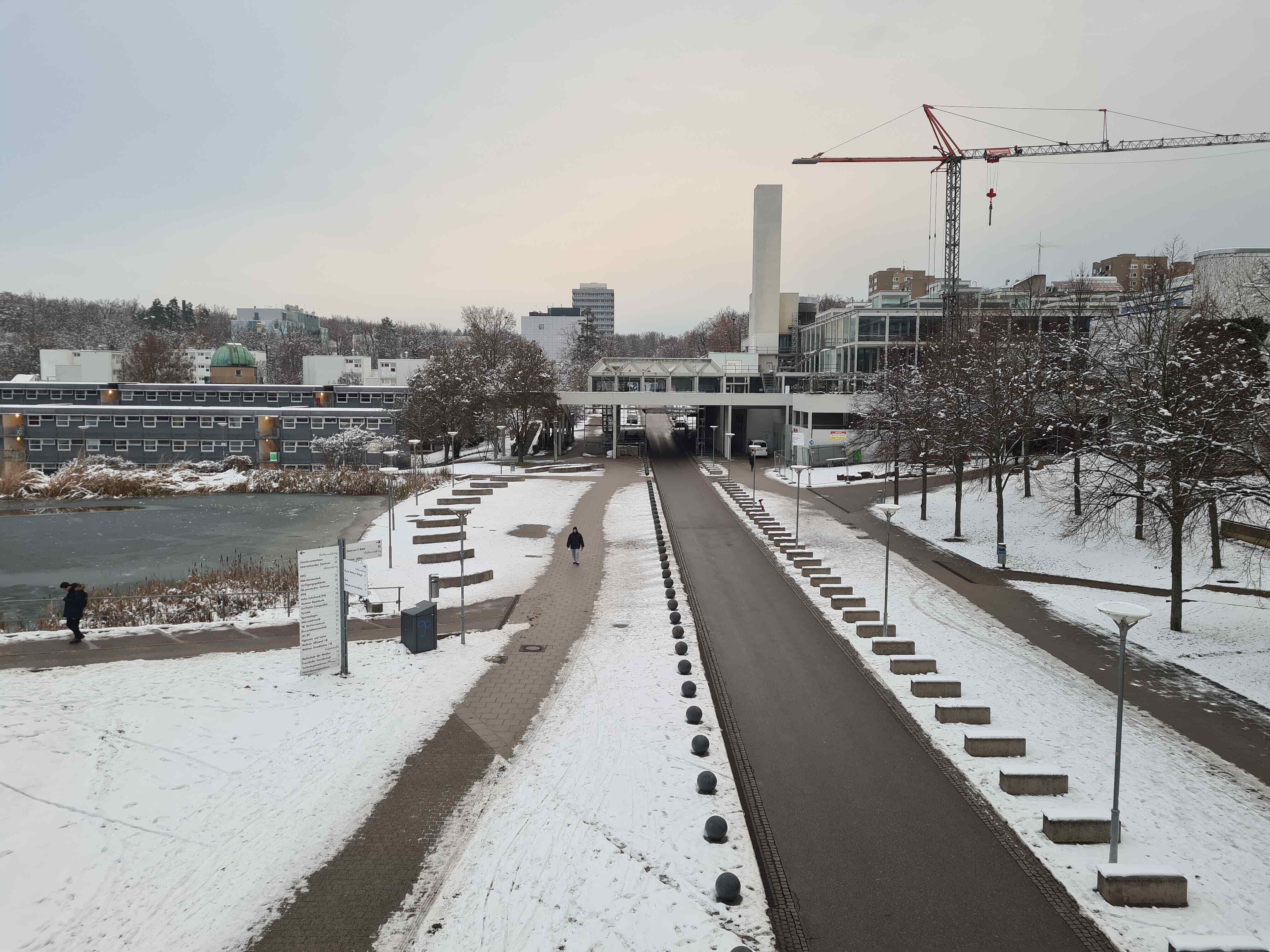

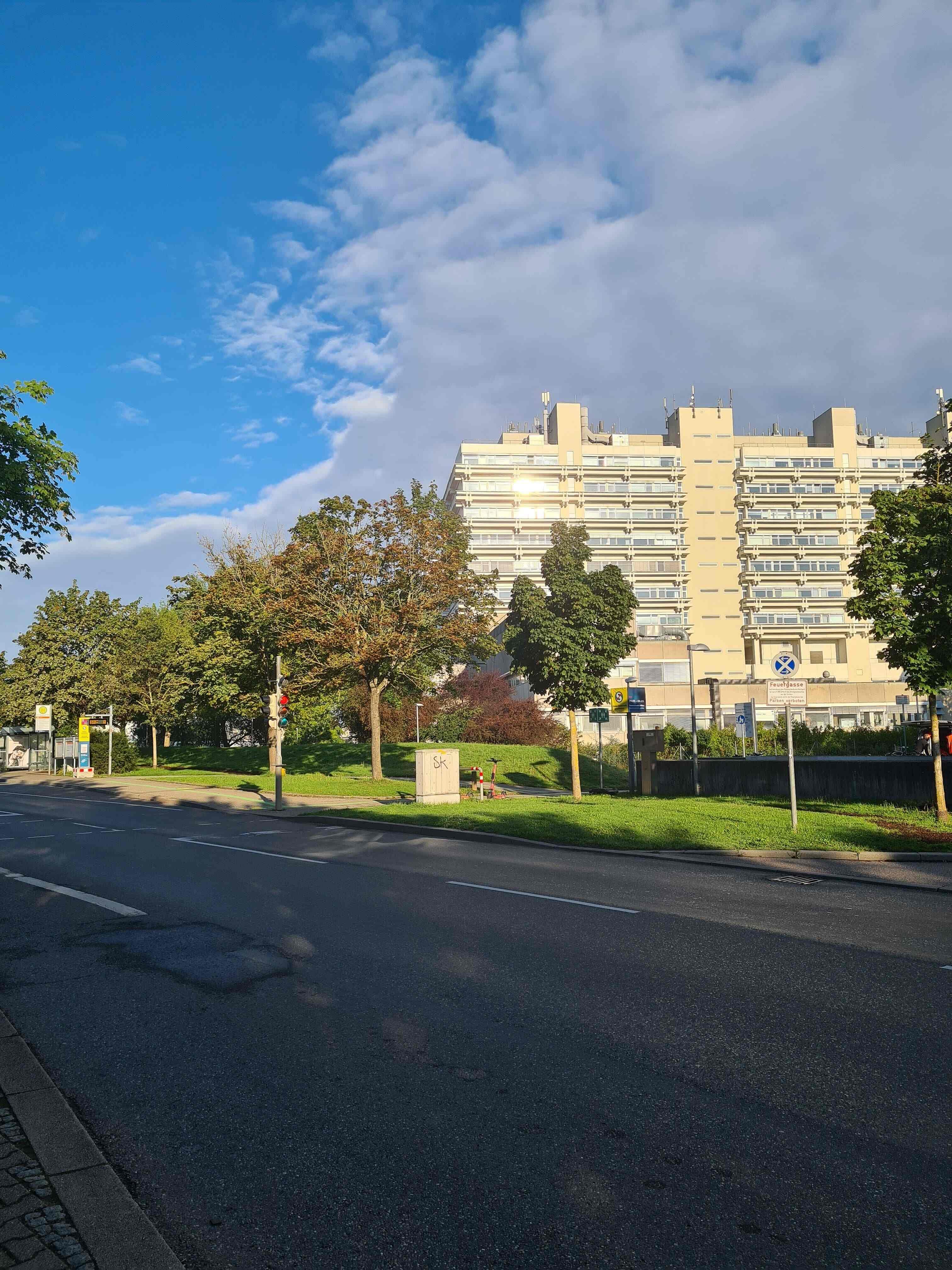
 - Souptik Majumdar (1).jpeg)
 - Souptik Majumdar.jpeg)
 - Souptik Majumdar.jpeg)
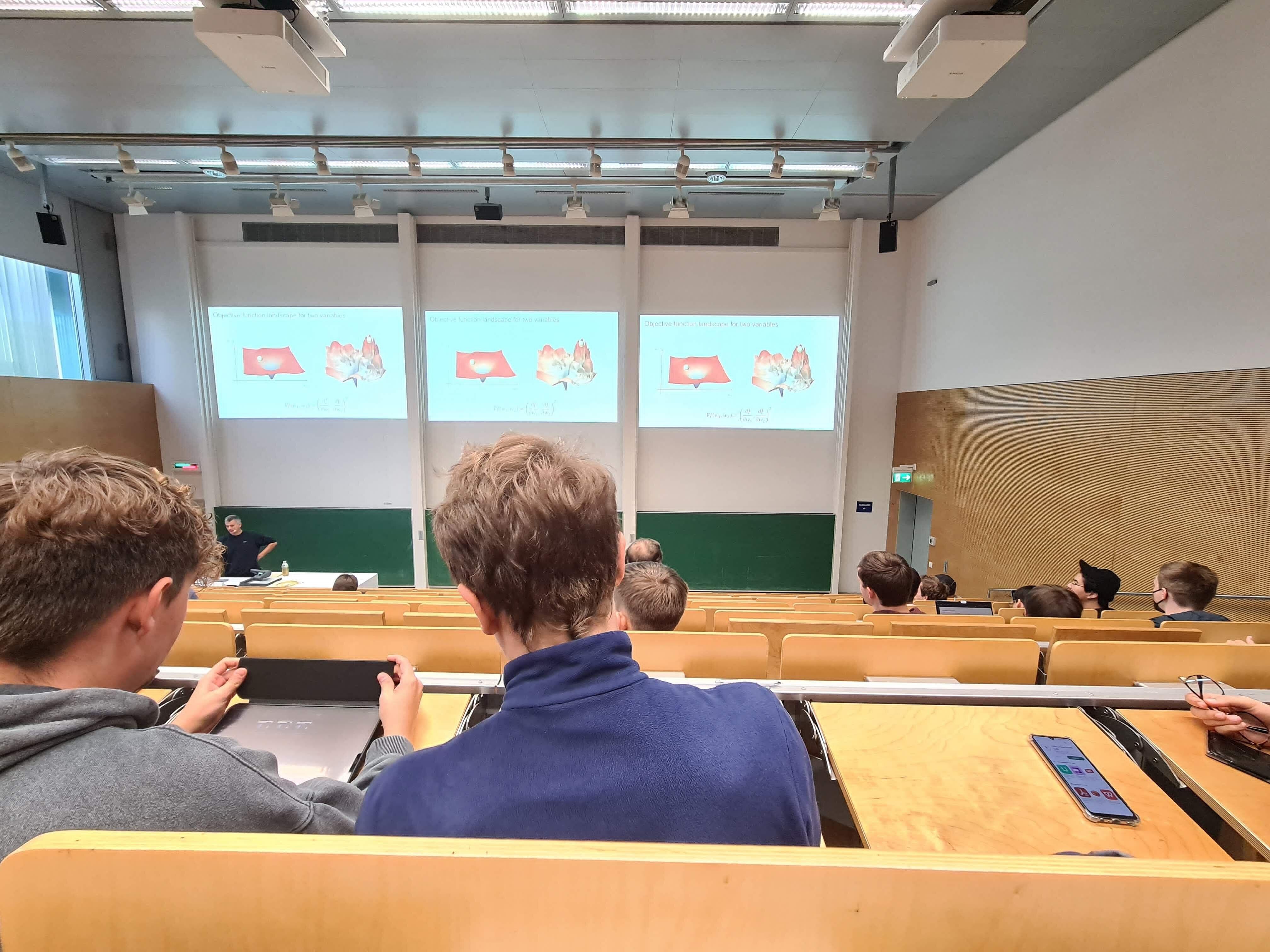
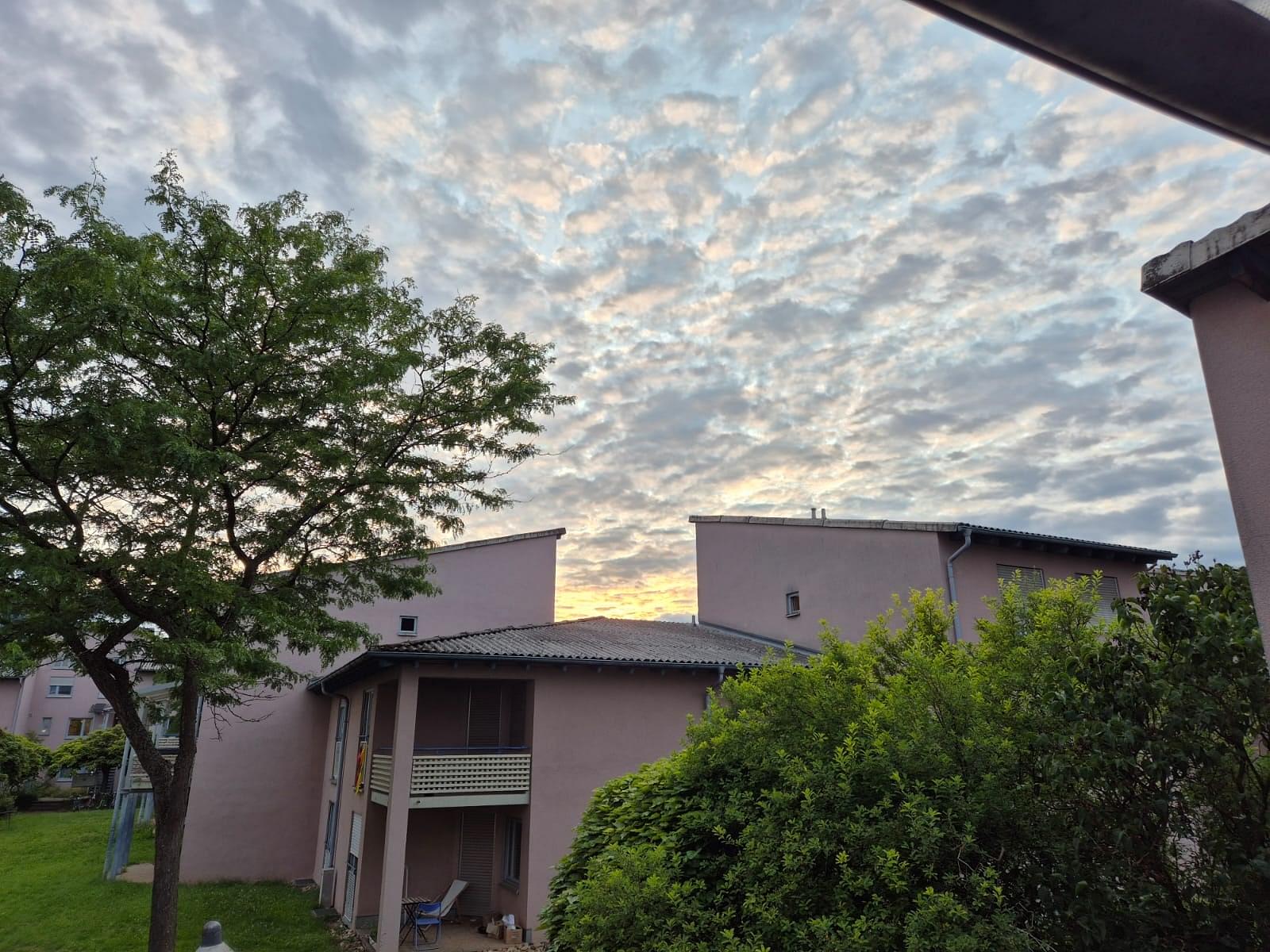
 - Souptik Majumdar.jpeg)
 - Souptik Majumdar.jpeg)
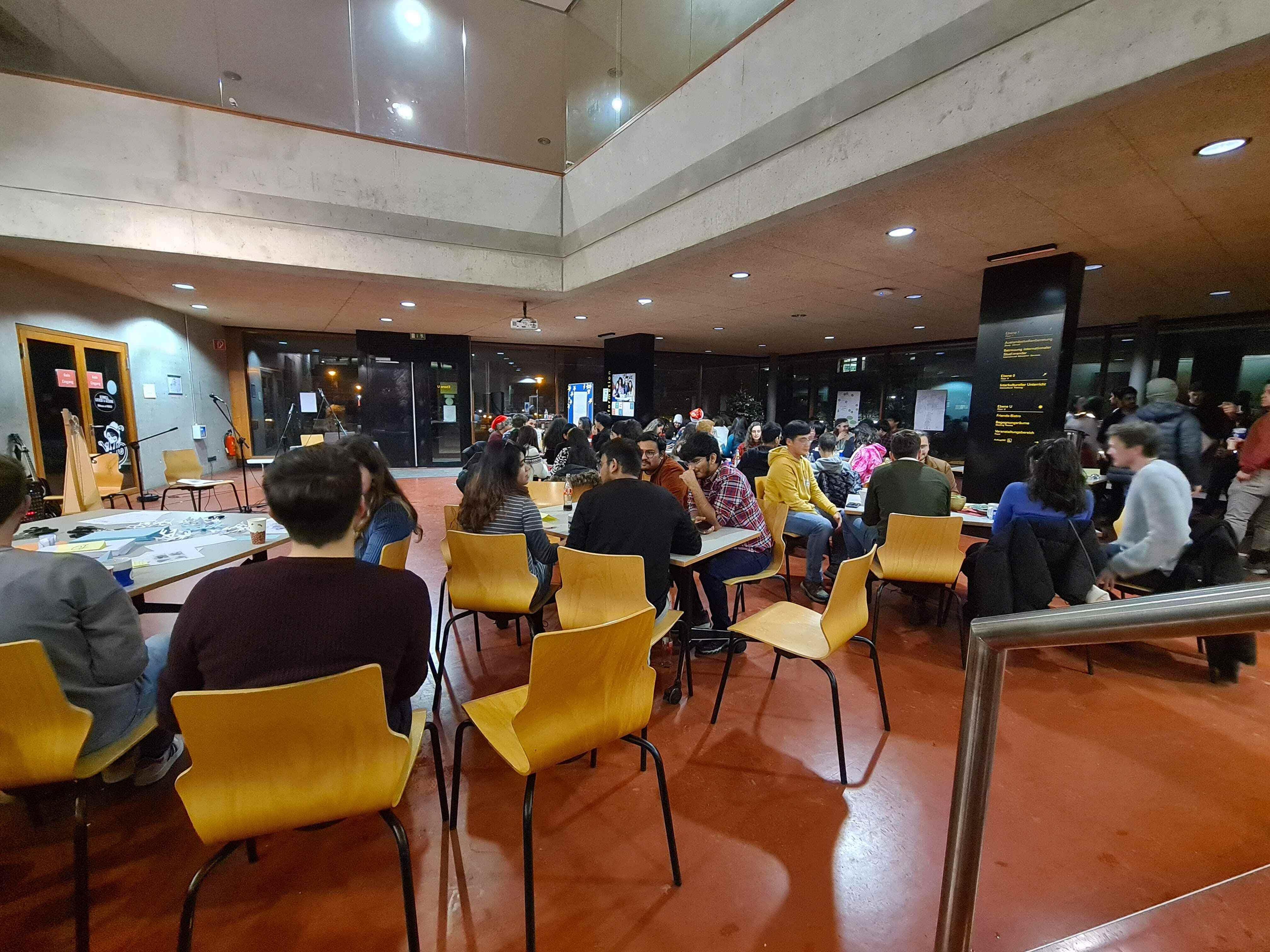
 - Souptik Majumdar.jpeg)
Likes
- Ideal location, Good support for students, Decent opportunities to work in and around
Dislikes
- Lots of theory, Long examination period, Short mid-term breaks
Course Curriculum
The curriculum is taught by professors who are researchers as well of the respective departments. So naturally it is more research-based and based on the latest findings up to the previous decade.
Fees
1500 euros for international students + semester contribution of around 150 euros
Likes
- The University of Stuttgart comes under the TU9 cluster and hence is well recognized.
- I love the balance between city and campus life. The campus is also quite accessible and well-connected to the city center.
- The university has more focus on research and the courses are structured in depth that way. So a lot of opportunities for research and development.
Dislikes
- The cost of living, including accommodation and daily expenses is relatively high here in Stuttgart.
- Finding accommodation can be tough, especially when you’re new – Usually able to get student housing if applied few months before arriving (5-6 months) and the private market in Stuttgart is pretty competitive.
- Some professors rely too much on theory and slides, with less focus on interactive or practical learning.
Course Curriculum
-
The course curriculum is highly updated and relevant definitely challenging, especially in the first semester. There are many specializations to choose from. The variety of elective courses allows us to tailor the education to our specific interests. There are many practical courses and labs as well which gives opportunities for hands-on learning. The curriculum also has options to do a research project under the guidance of a professor.
-
Mostly theory and research oriented in the beginning , which can feel overwhelming if you’re used to more hands-on learning. especially in electives or specialization modules, it becomes more balanced with practical work, labs, and projects. The level of self-study expected is quite high, and the exams are different from the ones we have in India and might be tough.
-
Positives:
*You get to choose from a wide range of electives upon your interests.
*Strong technical depth – especially in engineering or CS
*Opportunities to work on research or HiWi jobs under professors. -
Negatives:
*Some subjects are little boring due to too much theory.
*You’re expected to seek internships or side projects on your own. The university does not help in this. -
On average, I’d have around 2–3 classes per day, depending on the semester and course load. Classes are usually between 8:00 AM to 6:00 PM, but not all days are packed."
Fees
-
For international (non-EU) students like me, the tuition fee is €1,500 per semester. In addition to that, there’s a semester contribution of around €200–250, which covers administrative costs, student services etc.
-
Fees are charged semester wise.
-
Here’s a rough breakdown of my monthly living expenses in Stuttgart:
*Rent (student dorm or shared flat): €350 – 450*Health Insurance: €120 - 140
*Groceries and food: €100 - 120
*Public Transport: €30
*Phone & Internet: €20–30
*Other personal expenses (leisure, clothes, etc.): €100
-
So overall, my monthly expenses come to around €700–800, depending on lifestyle and housing.

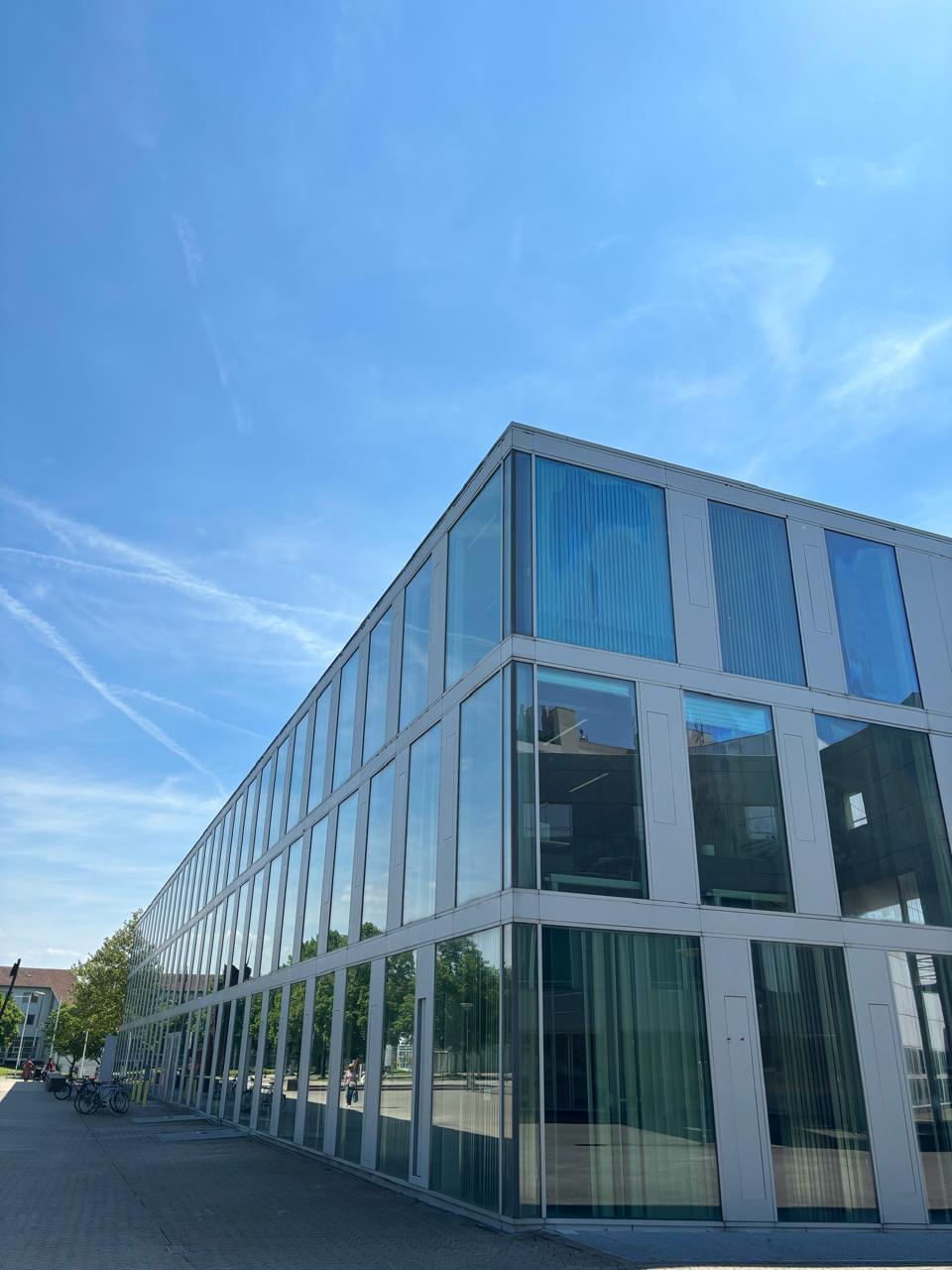
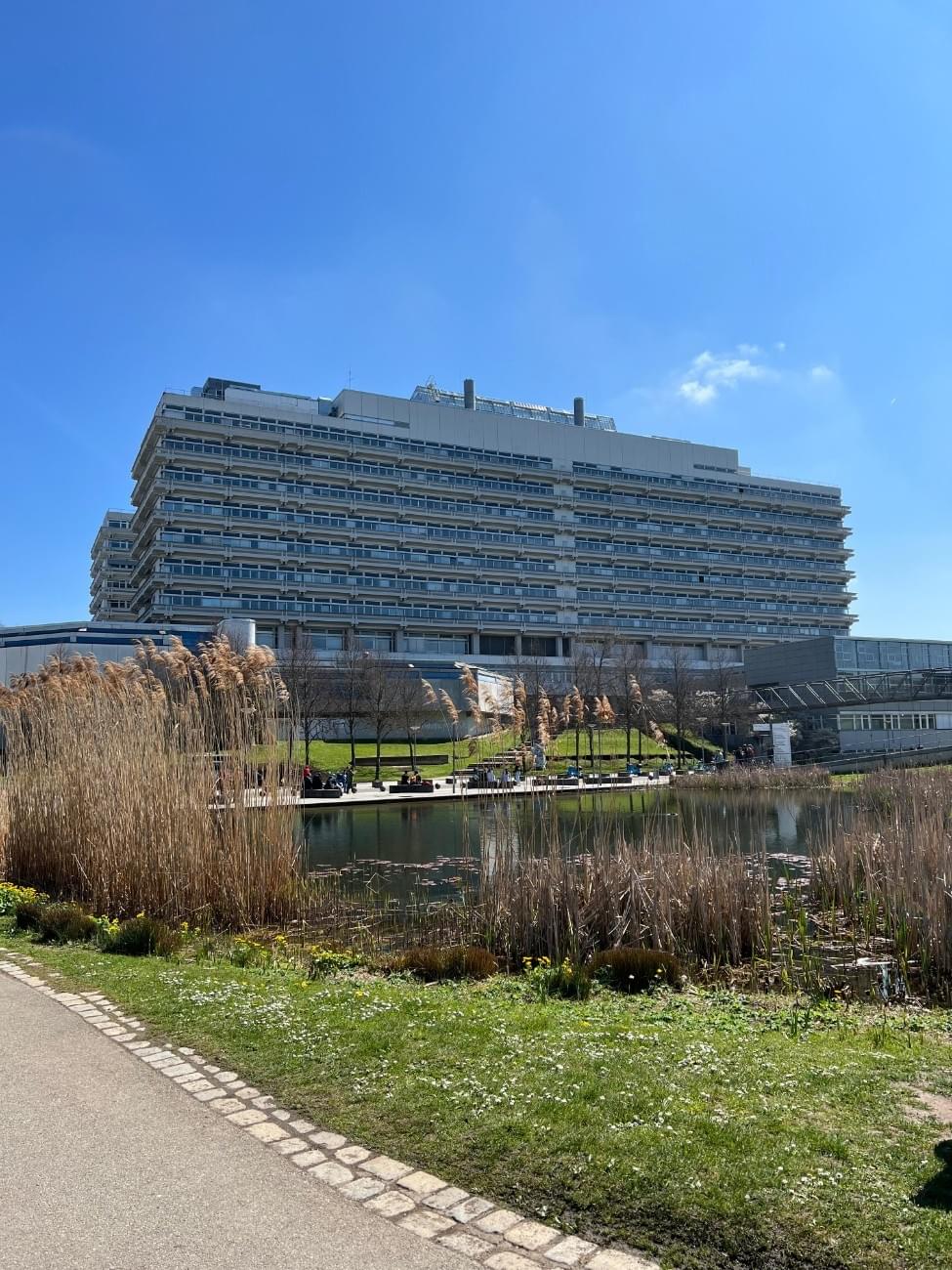
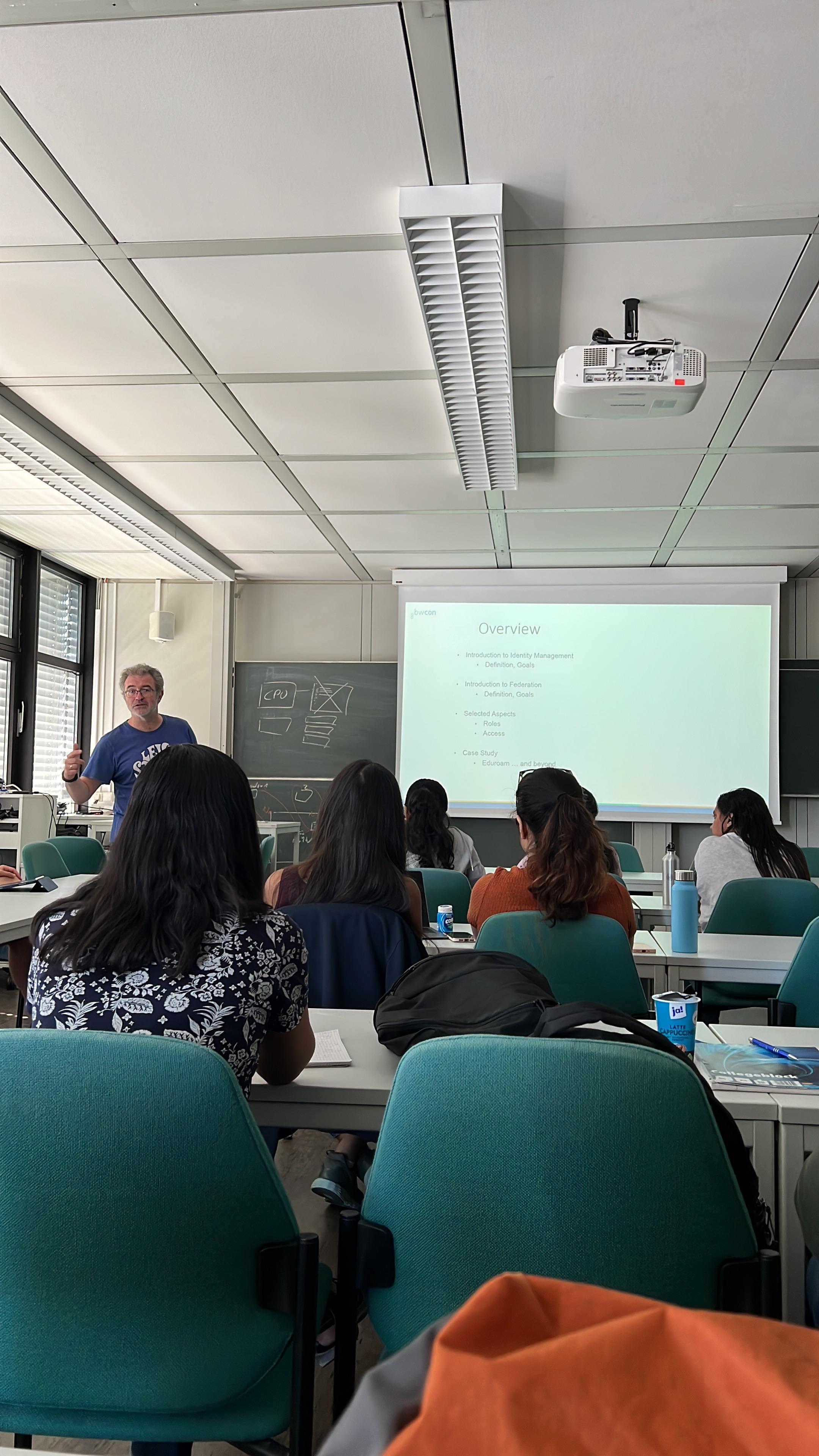
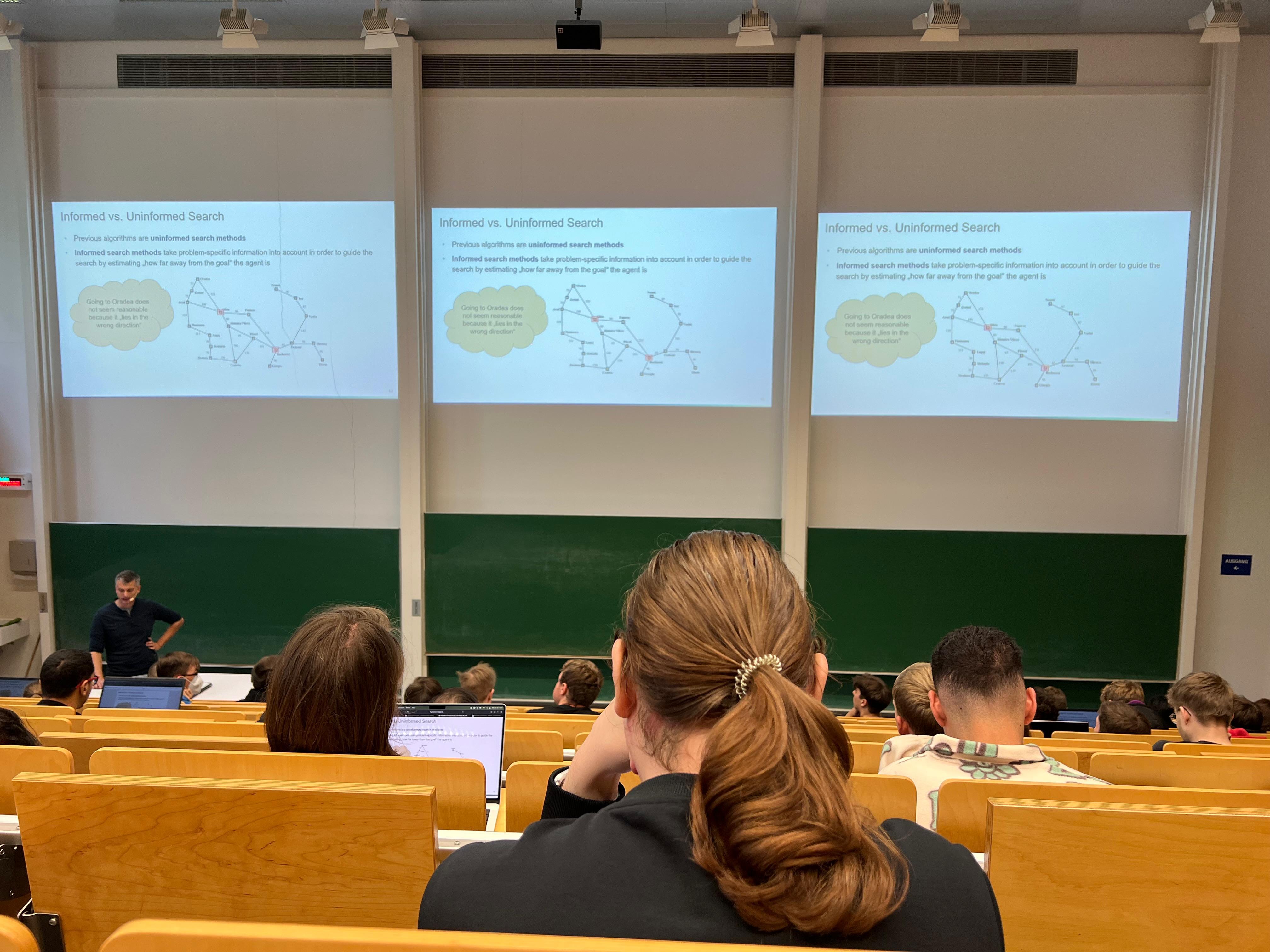
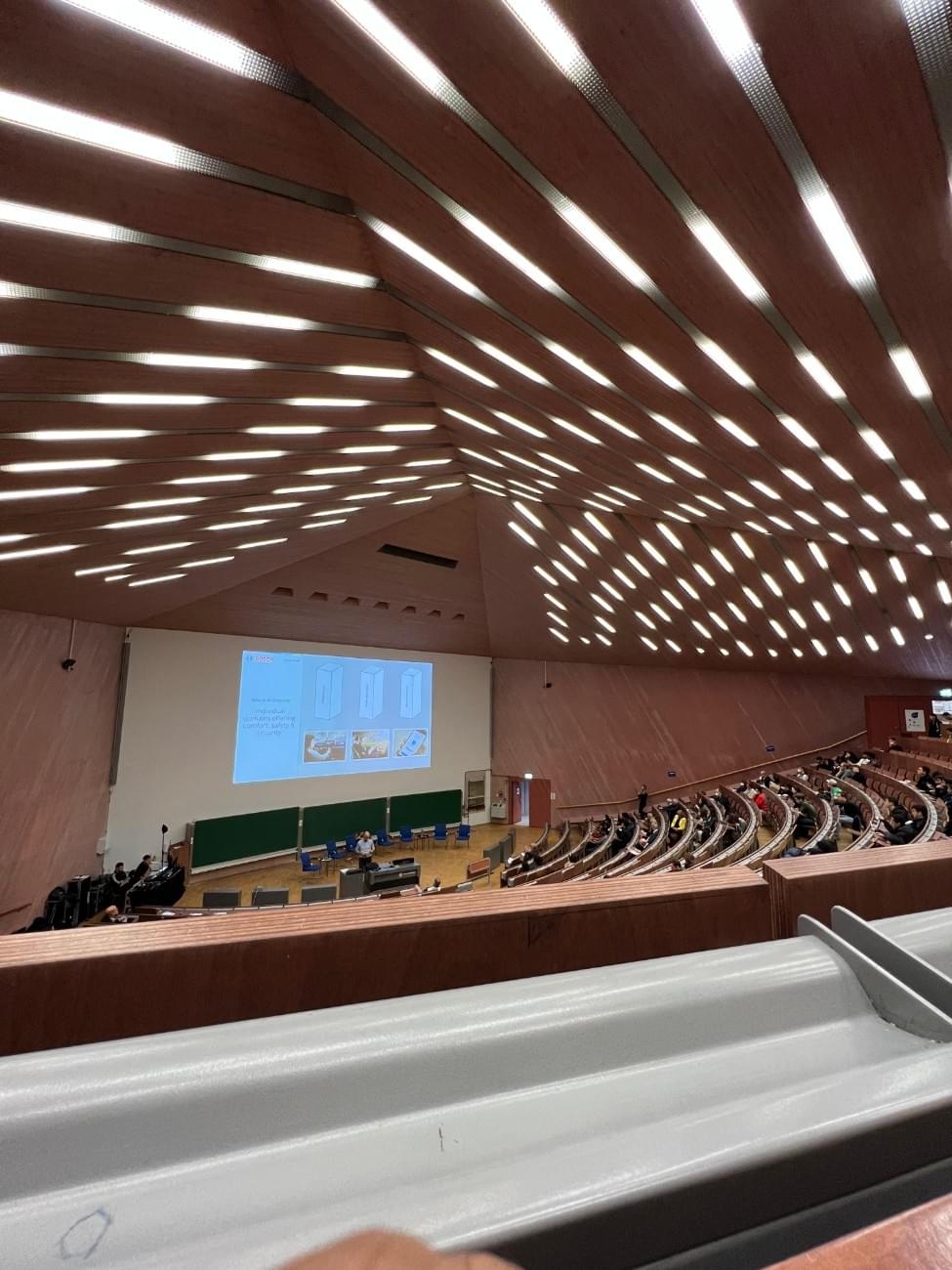
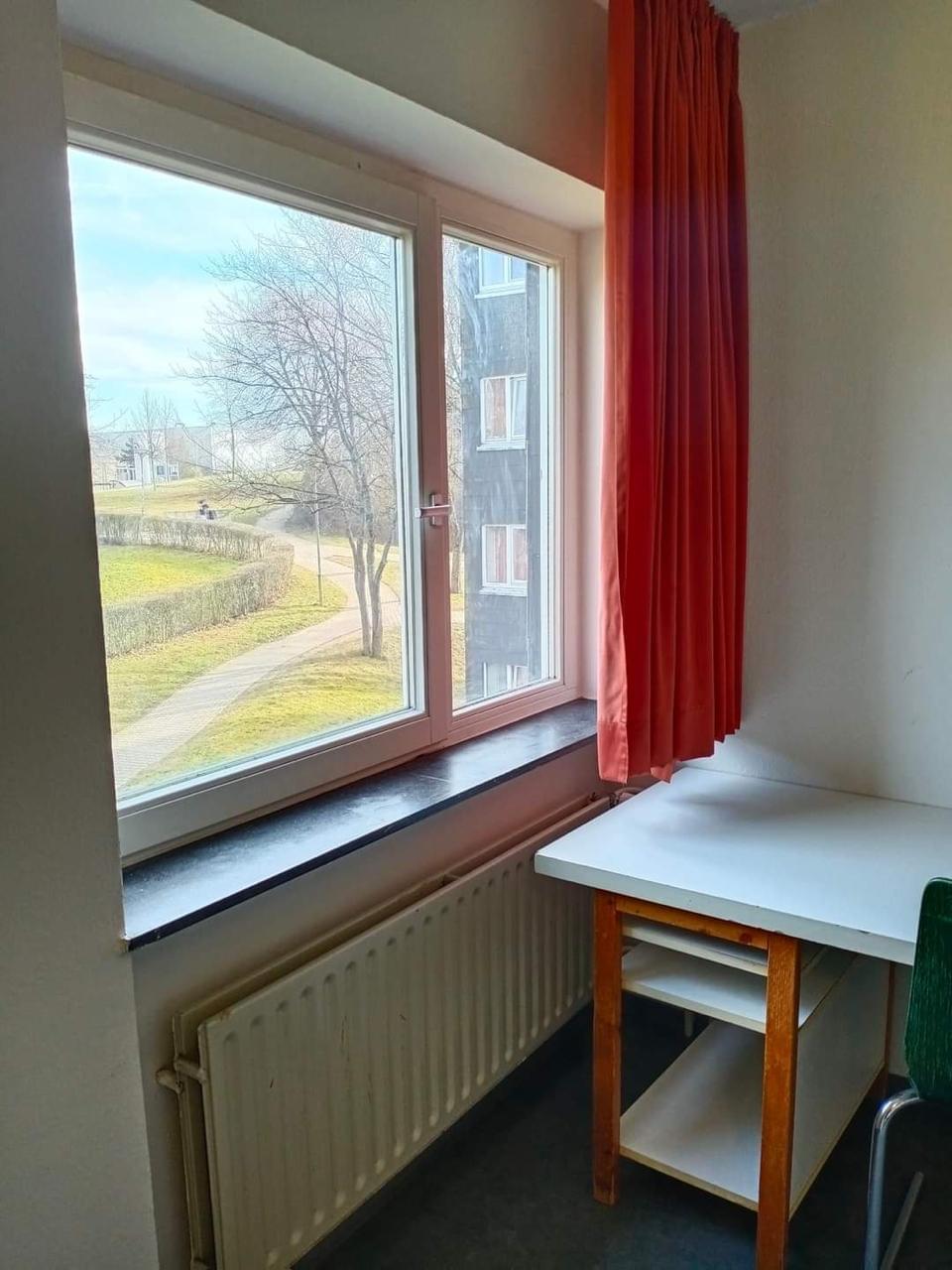
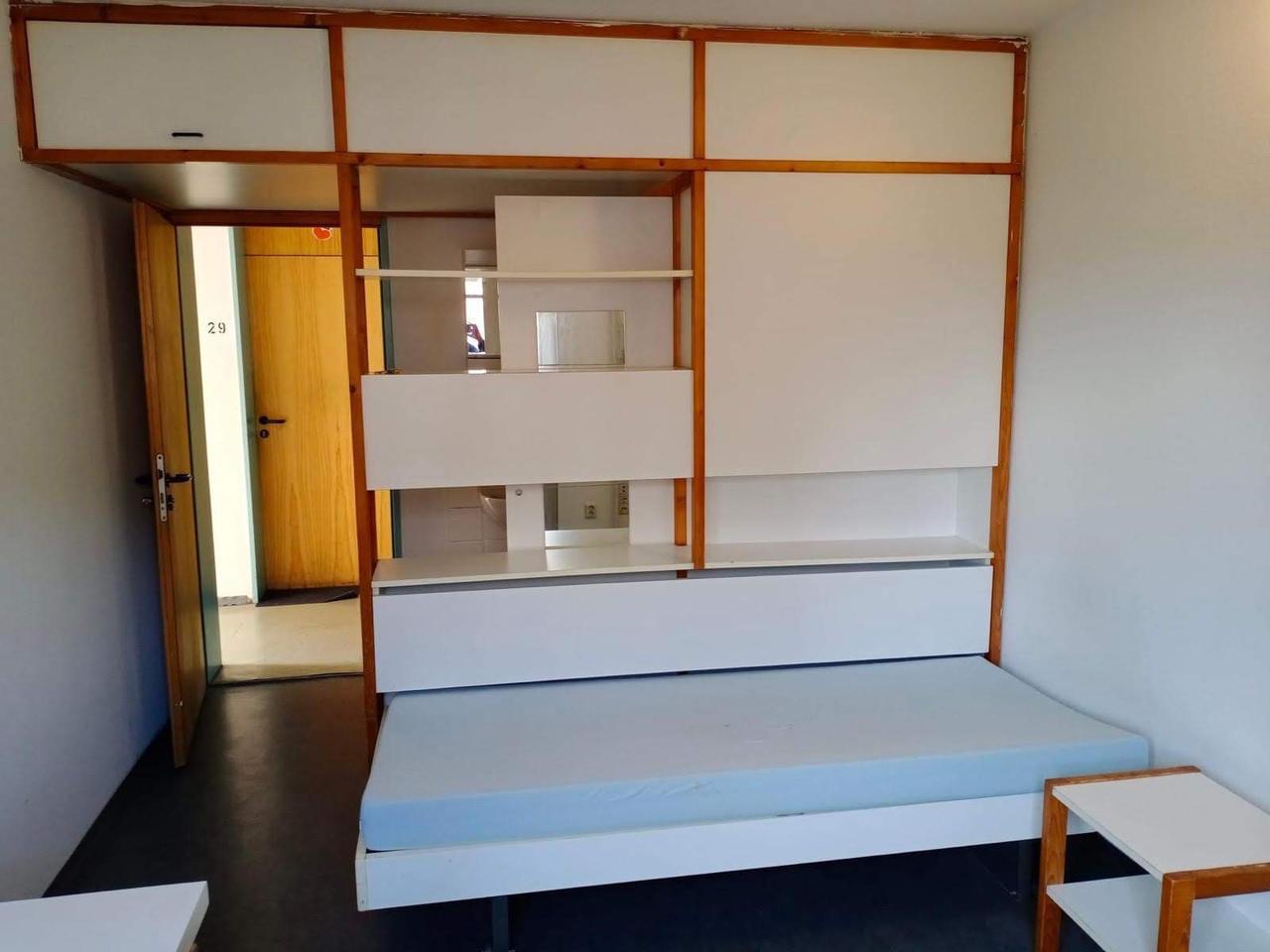
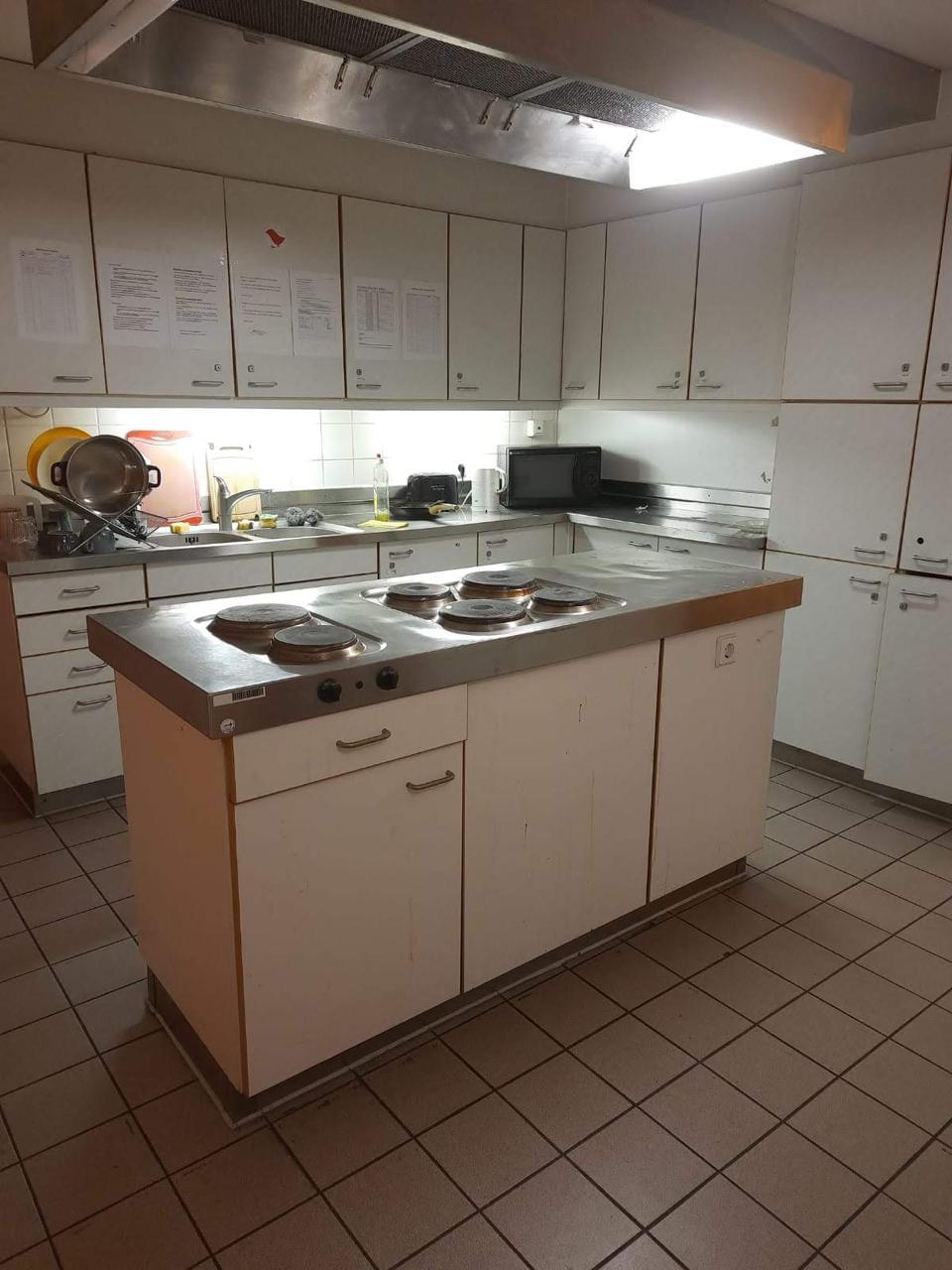
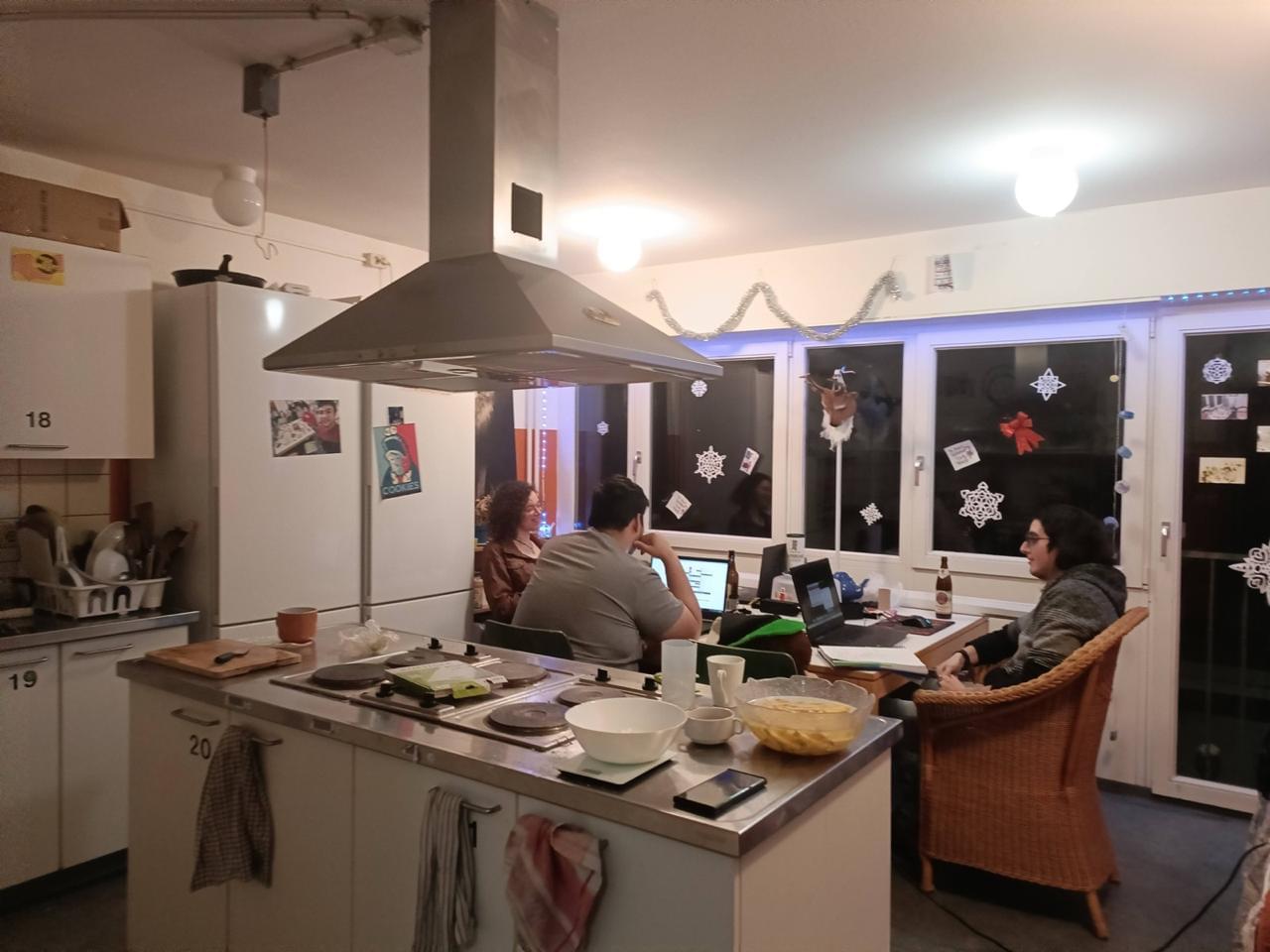
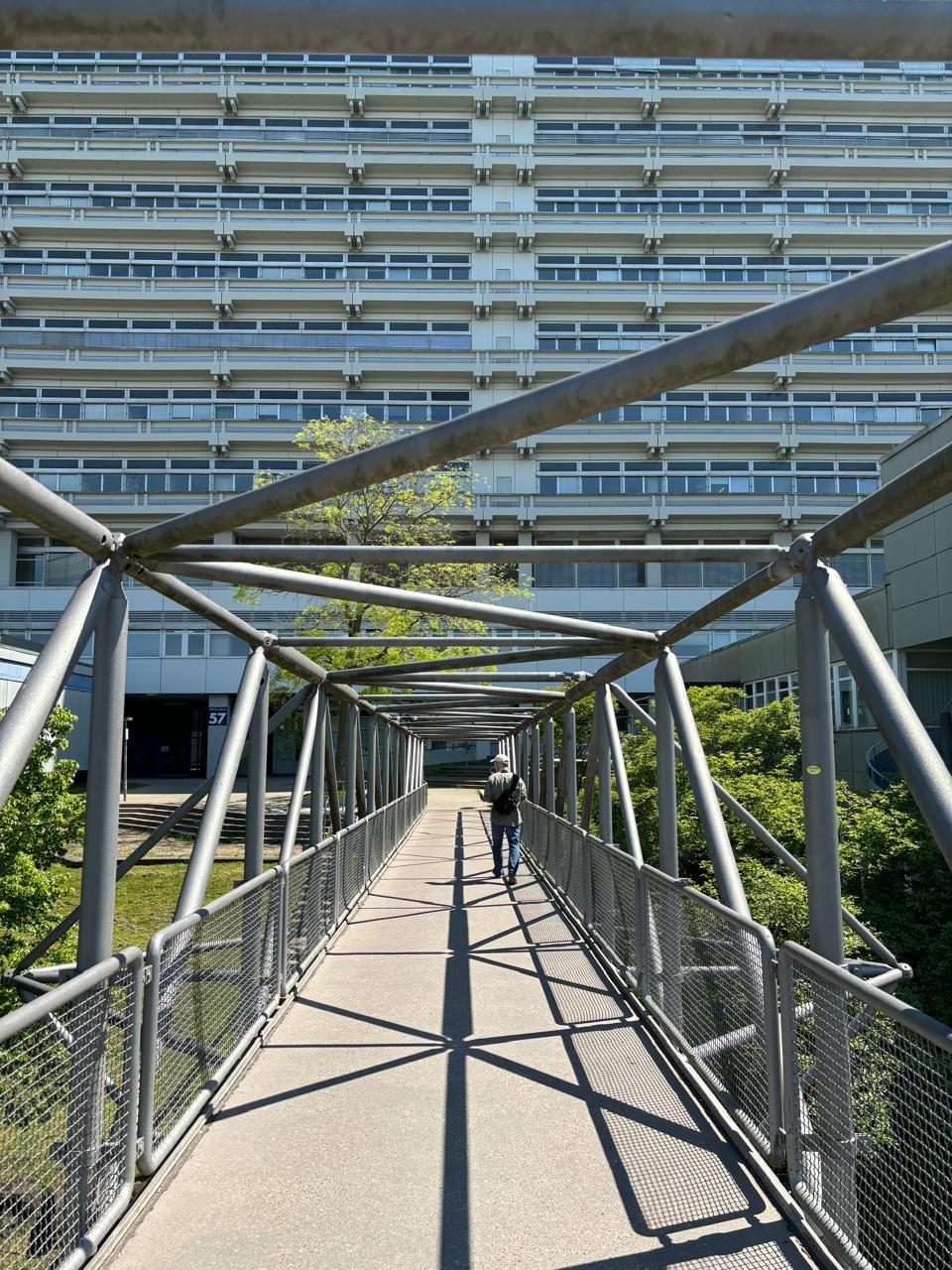
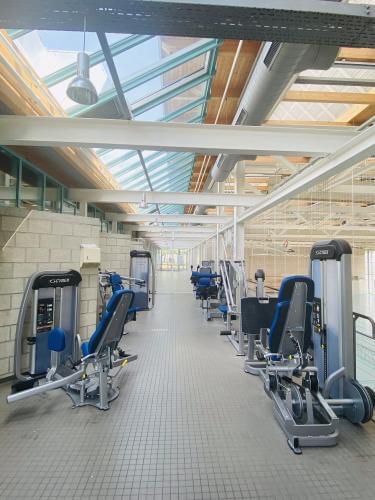
Likes
- The course matched with what I was looking for and I already had some first experience in the field.
- I liked the subsidized accommodations and the location of the university. Everything was available next to the university including transportation, outdoor stroll place and Internet.
Dislikes
- Infrastructure for the course, the class itself is okay but the lab exercises are not explained enough and most of us were clueless on what to do. The opportunity to work by yourself after classes in the lab was also limited.
Course Curriculum
The course syllabus is pretty old, but gives a solid foundation for what's happening in the background. New topics are added and there is a possibility to take extra courses apart from the curriculum out of our own interest. The course is research oriented, so there are a lot of research opportunities. There is no compulsion to do an internship within the course but can be done voluntarily, though getting an internship will be tougher in this case.
Fees
1700 euros including transport for weekend and evening during the week for a semester. It took me around 7 semesters to complete the course including an internship.
Likes
- - It is a TU9 University - It lies in the state of Baden Wüttemberg which has lots of headquarters for major companies, and thus more job opportunities
- - The course curriculum is designed to shape the individual according to the current trends of industry - Campus is well spreaded across the region of Stuttgart and surrounded with people from different cultures - Immense job opportunities - Many Indian communities organise events such as Diwali, holi etc.
Dislikes
- - The state of Baden Wüttemberg has a semester fee of 1700 Euros - The University has strict policies with respect to its course and might be at times difficult for students to deal with it - You might miss the final convocation ceremony the way you must have imagined
Course Curriculum
The course is regularly updated based on the Industry trends. The exams and assignments are perfect to blend with the academics.
Fees
1700 Euros per semester. Average is 4 semesters but it might vary depending on individual needs.







Comments